Are you seeking one-on-one college counseling and/or essay support? Limited spots are now available. Click here to learn more.

Carnegie Mellon Supplemental Essays 2023-24 – Prompts & Advice
September 8, 2023
When applying to a school like Carnegie Mellon that only accepts 11% of applicants, it’s important to keep in mind that the other 89% of applicants will ultimately be denied admission. Many of these rejected individuals will have straight A’s in high school and/or SATs in the 1500s. Those applying to certain programs—computer science, for example—will face even more harrowing odds. We don’t bring up this harsh reality in an attempt to crush your dreams or deter you from applying. Rather, we want to impart to prospective CMU applicants the need to maximize every component of your application. The aim is to ultimately shine just a touch brighter than your well-qualified competition. This includes the Carnegie Mellon supplemental essays.
(Want to learn more about How to Get Into Carnegie Mellon University? Visit our blog entitled: How to Get Into Carnegie Mellon: Admissions Data and Strategies for all of the most recent admissions data as well as tips for gaining acceptance.)
The three 300-word essays required by Carnegie Mellon give applicants the chance they need to separate themselves from the throngs of other extremely talented and deserving CMU hopefuls. Below are CMU’s supplemental prompts for the 2023-24 admissions cycle along with tips about how to address each one.
Carnegie Mellon Supplemental Essays – #1
Required – (300 word limit)
Most students choose their intended major or area of study based on a passion or inspiration that’s developed over time – what passion or inspiration led you to choose this area of study?
Here, CMU is asking you to share your story of how you became interested in your selected discipline. You can structure the narrative of this essay as a soup to nuts chronicling of your entire journey toward your discipline of interest. Contrarily, you could share one or two vignettes that illustrate your burgeoning passion for engineering, history, French, computer science, business, psychology, etc. As you begin the prewriting phase, you may want to ask yourself the following questions:
- What is your first strong memory relating to your future area of study?
- What fills you with wonder?
- What books have you read on the subject?
- Do you consume podcasts or documentaries related to your passions?
- Have certain online or print publications helped to fuel your interests?
- What subtopics of your prospective discipline most intrigue you?
- Did a teacher excite you about this topic or was it a parent/relative or outside mentor?
- How did you seek our subject-relevant opportunities outside of the high school classroom?
CMU Supplemental Essays – #2
Many students pursue college for a specific degree, career opportunity or personal goal. whichever it may be, learning will be critical to achieve your ultimate goal. as you think ahead to the process of learning during your college years, how will you define a successful college experience.
There’s a lot to unpack in this prompt before you even enter the brainstorming phase of the essay-writing process. First they want to know a bit about your goals in earning a CMU degree. These goals could be:
- Degree-oriented
- Career-focused
- A combination of two or all three of the previous options.
Given that CMU requires you to apply to a particular college within the larger university, you likely already have a reasonably strong notion of what discipline you hope to study. You’ll definitely want to share everything you already know about the degree you aim to earn. Additionally, you’ll want to discuss how that fits into your larger life plans.
Next, you’ll want to take note of the fact that “learning” is mentioned twice in this prompt, a solid indicator that CMU is sincerely interested in how you will take advantage of the unique learning opportunities available to you at their instruction. While not required, you should consider discussing items such as:
- CMU-specific academic programs , professors, or course offerings.
- Undergraduate research opportunities .
- Study abroad programs .
- The classroom environment at Carnegie Mellon— class size , laboratory settings, etc.
- Campus organizations that will help you continue your learning outside of the classroom.
In short, generic thoughts about how you envision engaging in the learning process throughout your collegiate experience are perfectly fine, but school-specific detail can take an essay from good to great.
CMU supplemental Essays – #3
Consider your application as a whole. what do you personally want to emphasize about your application for the admission committee’s consideration highlight something that’s important to you or something you haven’t had a chance to share. tell us, don’t show us (no websites please)..
After completing your main Common App essay and the first two CMU essays, is there anything that you have yet to share that is absolutely elemental to who you are as a person/student? Without the benefit of an in-person interview, it may feel like you never fully had a chance to connect intimately with a Carnegie Mellon admissions officer. You have a burning sense that you have not communicated the full you, your true essence, your je ne sais quoi, your…you get the idea. If you feel something important about yourself has yet to be communicated elsewhere in the application, then CMU Prompt #3 is the answer to your prayers.
Consider that the admissions reader is already familiar with your academic history, activities, and awards. What don’t they know, or, what could they understand on a deeper level? This could be a particular skill or talent, or something about your character or personality. This one is intentionally open-ended, so use this space to share your most cherished accomplishments or most winning attributes. The university itself is inviting you to “brag” here. We recommend obliging, by presenting the equivalent to a “closing argument” at the end of this admissions trial.
One example of what not to do would be to say, “I work as a camp counselor in the summer” if that was already listed in the Activities section. Another no-no is deciding that the admonition regarding linking to websites doesn’t apply to you, because, well…they simply have to see your art exhibit or performance on stage in Oklahoma! last year. We promise that it is better to take CMU at their word that they prefer that you describe it. This remains true no matter what “it” is.
How important are the Carnegie Mellon supplemental essays?
CMU rates the essays as being an “important” factor in their evaluation process. The essays are listed alongside recommendations, talent/ability, character/personal qualities, first-generation status, and race/ethnicity. The only factors ranked above the essays as being “very important” are: GPA, the rigor of high school coursework, class rank, extracurricular activities, work experience, and volunteer work.
Want Personalized Essay Assistance?
Lastly, if you are interested in working with one of College Transitions’ experienced and knowledgeable essay coaches as you craft your Carnegie Mellon supplemental essays, we encourage you to get a quote today.
- College Essay
Dave Bergman
Dave has over a decade of professional experience that includes work as a teacher, high school administrator, college professor, and independent educational consultant. He is a co-author of the books The Enlightened College Applicant (Rowman & Littlefield, 2016) and Colleges Worth Your Money (Rowman & Littlefield, 2020).
- 2-Year Colleges
- Application Strategies
- Best Colleges by Major
- Best Colleges by State
- Big Picture
- Career & Personality Assessment
- College Search/Knowledge
- College Success
- Costs & Financial Aid
- Data Visualizations
- Dental School Admissions
- Extracurricular Activities
- Graduate School Admissions
- High School Success
- High Schools
- Homeschool Resources
- Law School Admissions
- Medical School Admissions
- Navigating the Admissions Process
- Online Learning
- Outdoor Adventure
- Private High School Spotlight
- Research Programs
- Summer Program Spotlight
- Summer Programs
- Teacher Tools
- Test Prep Provider Spotlight
“Innovative and invaluable…use this book as your college lifeline.”
— Lynn O'Shaughnessy
Nationally Recognized College Expert
College Planning in Your Inbox
Join our information-packed monthly newsletter.
- Search All Scholarships
- Exclusive Scholarships
- Easy Scholarships to Apply For
- No Essay Scholarships
- Scholarships for HS Juniors
- Scholarships for HS Seniors
- Scholarships for College Students
- Scholarships for Grad Students
- Scholarships for Women
- Scholarships for Black Students
- Scholarships
- Student Loans
- College Admissions
- Financial Aid
- Scholarship Winners
- Scholarship Providers
Student-centric advice and objective recommendations
Higher education has never been more confusing or expensive. Our goal is to help you navigate the very big decisions related to higher ed with objective information and expert advice. Each piece of content on the site is original, based on extensive research, and reviewed by multiple editors, including a subject matter expert. This ensures that all of our content is up-to-date, useful, accurate, and thorough.
Our reviews and recommendations are based on extensive research, testing, and feedback. We may receive commission from links on our website, but that doesn’t affect our editors’ opinions. Our marketing partners don’t review, approve or endorse our editorial content. It’s accurate to the best of our knowledge when posted. You can find a complete list of our partners here .
How to Respond to the 2023/2024 Carnegie Mellon Essay Prompts

Ginny Howey is a former content writer at Scholarships360. Ginny graduated from the University of North Carolina at Chapel Hill in May 2022 with a degree in Media and Journalism (Advertising/PR focus) and minors in Entrepreneurship and Spanish. Ginny’s professional experience includes two summers as a writer intern at global creative consultancy BCG BrightHouse. More recently, Ginny worked as a content marketing intern for Durham-based software engineering bootcamp Momentum, where she gained SEO skills. She has also written freelance articles on emerging tech for A.I. startup Resultid.
Learn about our editorial policies

Bill Jack has over a decade of experience in college admissions and financial aid. Since 2008, he has worked at Colby College, Wesleyan University, University of Maine at Farmington, and Bates College.

Maria Geiger is Director of Content at Scholarships360. She is a former online educational technology instructor and adjunct writing instructor. In addition to education reform, Maria’s interests include viewpoint diversity, blended/flipped learning, digital communication, and integrating media/web tools into the curriculum to better facilitate student engagement. Maria earned both a B.A. and an M.A. in English Literature from Monmouth University, an M. Ed. in Education from Monmouth University, and a Virtual Online Teaching Certificate (VOLT) from the University of Pennsylvania.

Carnegie Mellon is one of the nation’s top universities. With a 14% acceptance rate , CMU surely gets top applicants each year. If you want to rise above the rest, the Carnegie Mellon supplemental essays are your chance. Carnegie Mellon’s prompts touch on different aspects of your background, interests, and goals. They are a great way to show off more of your personality and enthusiasm for the school. Planning strong examples to weave throughout your essays is key to success.
We will walk you through each prompt and offer tips on how to craft stellar responses for each of the Carnegie Mellon supplemental essays!
Also see: How to write an essay about yourself
“ Most students choose their intended major or area of study based on a passion or inspiration that’s developed over time – what passion or inspiration led you to choose this area of study? (300 words) ”
Say you are interested in Computer Science. Well, you would not be alone, given it is Carnegie Mellon’s top major. Fortunately, this question invites you to back up your chosen area of study with a reason that is distinctly yours. For example, you could discuss your obsession with Guitar Hero as a kid and thus how video games are made. This inspiration for why you want to study programming makes this response personal and unique.
Note that this prompt says a passion or inspiration that’s developed over time. Talk about the origin of your interest, then trace the ways you have further cultivated it. What started as a Guitar Hero fascination then led you to take a summer coding bootcamp. Now, you spend hours viewing YouTube videos on game development. Whatever your major is, try to get to the core of what intellectually excites you about it and what sparked that curiosity. This will ensure your sincerity and voice shines through. You can close with your long-term aspiration in this field or conclude more specifically with how you plan to pursue this interest at CM.
Questions to consider:
- Is there a role model you look up to whose career you’d like to emulate?
- Have you taken a class that piqued your interest in this major?
- Are you drawn to a particular field of study because of the positive impact it can make in the world?
“ Many students pursue college for a specific degree, career opportunity or personal goal. Whichever it may be, learning will be critical to achieve your ultimate goal. As you think ahead to the process of learning during your college years, how will you define a successful college experience? (300 words) ”
This question can be tricky for some students because there are many directions to take your response. There is no one right answer for what you’d like to achieve in college and what constitutes a successful experience. After all, learning takes place both in and out of the classroom. Instead of being scared of this freedom, embrace it. Before writing, take a moment to really envision yourself in four years. How do you hope to grow personally and academically at Carnegie Mellon? If one goal does not dominate, make a list of all the things you want to achieve and find a way to summarize them into an overarching theme.
One example could be how the prospect of meeting new people energizes you. You might discuss how you grew up in a small, southern town as an only child. Moving to Pittsburgh to live with peers of diverse backgrounds will be a big shift. Studying abroad could be another related wish for your time at CM. Talk about how these experiences will fulfill your ultimate goal of expanding your worldview. This avenue is a great way to discuss CM’s values and how you hope to align them with your own, as well.
Some students approach this question by discussing college as the key to unlock their dream profession. If you take this route, be sure you are not repeating information you discussed in prompt #1. You could go at it from a more abstract lens, like discovering how to engage both your creative and analytical sides. You could talk about an interesting major/minor combination, clubs you’d like to be involved in, or a research project you wish to explore.
Questions to consider:
- What would you change about your high school mindset? For example, do you want to do a better job taking risks, or make community service a weekly priority?
- In what ways will college enrich your character?
- What academic benchmarks do you hope to meet?
“ Consider your application as a whole. What do you personally want to emphasize about your application for the admission committee’s consideration? Highlight something that’s important to you or something you haven’t had a chance to share. Tell us, don’t show us (no websites please). (300 words) ”
Similar to prompt #2, this response is incredibly open. You can choose to write literally anything about yourself here. Of all the prompts, this is perhaps the best way to differentiate your essays. It is helpful to look over your application as a whole. What have you already shared with admissions, and what have you left out?
Is there something meaningful to you that you could only briefly mention in your activities section? For instance, you may have been in the improvisation club in high school. You could describe how you used to be incredibly shy, but this form of theater let’s you discover a whole new witty side to yourself. It may have taught you humility and the value in stepping outside of your comfort zone. These are terrific qualities to take with you to CM.
In a whole different vein, you could use this space to be vulnerable. Maybe remote learning was especially hard on you and resulted in a semester of lower grades. You could explain the obstacles you overcame and how it made you realize the importance of prioritizing mental health. This showcases your resiliency and informs admissions about an inconsistency on your transcript.
The admissions team wants to know what makes you, you. They also are curious about your road to get to this point. So, anything is fair game. Trust your gut, and choose something that you feel is genuinely important to paint a whole picture of yourself and your experiences.
- What have you been involved in that has shaped who you are today?
- Are there any red flags on your application that require explaining?
- Do you have any unique hobbies or stand-out personality traits?
Final thoughts
After these deep dives, we hope you feel inspired to tackle each of the Carnegie Mellon supplemental essays with ease. Use our tips to organize your responses, then get all your thoughts down. You can cut out the fluff and revise for grammar and writing quality later. Be genuine in sharing what matters to you, not what you think admissions want to hear. You are well on your way to crushing these essays!
Also see: Top scholarships for high school seniors
Additional resources
As you continue in your college application process, make sure to check back with us for other useful resources! We can help you decide how many schools to apply to , how to write a 500 word essay , and how to get a college application fee waiver . We’ll also help you decide whether you should send your ACT/SAT scores to test-optional schools. Good luck!
Start your scholarship search
- Vetted scholarships custom-matched to your profile
- Access exclusive scholarships only available to Scholarships360 members
Other colleges to consider
- University of Chicago (Chicago, IL)
- Massachusetts Institute of Technology (Boston, MA)
Scholarships360 Recommended

10 Tips for Successful College Applications

Coalition vs. Common App: What is the difference?

College Application Deadlines 2023-2024: What You Need to Know
Trending now.

How to Convert Your GPA to a 4.0 Scale

PSAT to SAT Score Conversion: Predict Your Score

What Are Public Ivy League Schools?
3 reasons to join scholarships360.
- Automatic entry to our $10,000 No-Essay Scholarship
- Personalized matching to thousands of vetted scholarships
- Quick apply for scholarships exclusive to our platform
By the way...Scholarships360 is 100% free!

Carnegie Mellon University 2023-24 Supplemental Essay Prompt Guide
Early Decision: Nov 1
Regular Decision Deadline: Jan 3
You Have:
Carnegie Mellon University 2023-24 Application Essay Question Explanations
The Requirements: 3 short essays of 300 words
Supplemental Essay Type(s): Why , Short Answer
Many students pursue college for a specific degree, career opportunity or personal goal. Whichever it may be, learning will be critical to achieve your ultimate goal. As you think ahead to the process of learning during your college years, how will you define a successful college experience?
So many factors go into shaping your educational experience: course selection, professors, classmates, campus culture, even the city where you’ll live. Think through how each of these will affect you and jot down some examples of what you’re looking for in each. Do you value a professor who is accessible via office hours? Do you focus well in a stadium-seating lecture hall? Are you excited to start a small study group for your Shakespeare: Comedies and Romances literature course? Additionally, do some research on their website and show them that you value what they specifically have to offer. Give them a peek into how you learn and help them visualize you as a thriving student in their community.
Most students choose their intended major or area of study based on a passion or inspiration that’s developed over time – what passion or inspiration led you to choose this area of study?
This prompt sounds simple enough: describe what you want to study and why you like it so much so that you’re willing to dedicate four years of your life to it (at the very least). While you might be tempted to get technical or poetic in your response, your reader will expect you to connect your intended major with some prior experience and/or passion. In other words, tell a story. Lucky for you, we would have advised you to start with an anecdote anyway. The most personal, memorable essays spring from concrete descriptions of your lived experience. What excites you and why? When was the last time you got drawn down a Reddit rabbit hole – and what was the topic? While you don’t need to drill to the origin of your interest in a given topic, try to zero in on some formative experience: the best TED Talk you ever watched, the first time you spoke to your new friend in ASL, that one time when you shadowed an EMT and saw what it’s like to help people in need! Your story should showcase your unique connection to your chosen course of study. And don’t forget: CMU asks what passion OR inspiration led you to choose this area of study. You can also talk about a particularly powerful book you read or a life-changing experience that set you on this path. Just make sure to use details to bring your story to life.
Consider your application as a whole. What do you personally want to emphasize about your application for the admission committee’s consideration? Highlight something that’s important to you or something you haven’t had a chance to share. Tell us, don’t show us (no websites please).
This prompt is a kind of free for all opportunity. Much like Common App’s prompt #7 , CMU is giving you free reign to write about any topic under the sun. If you’re overwhelmed by all the potential possibilities, don’t fret. Instead take a breath and ask yourself: What doesn’t admissions know about me yet? What do I wish I’d had more space to write about on my resume or activity list? If you’ve written a supplemental essay for another school about a particularly rewarding activity, this is an excellent place to tweak and recycle that essay. Almost any essay that you have already written in response to supplemental essay prompts for other schools will be applicable here, as long as it doesn’t address what you want to study or how you work with others. If you haven’t already drafted any others supplemental essays that would fit here, feel free to seek inspiration in the prompts for other schools (ideally the ones on your list). Worst case scenario, revisit your personal statement brainstorming notes and think about the topics that you almost wrote about. Can you write about any of those memories or stories in 200 words?
About Kat Stubing
View all posts by Kat Stubing »
Check out our YouTube Channel!
Contact us for information on rates and more!
- I am a * Student Parent Potential Partner School Counselor Private College Counselor
- Name * First Last
- Phone Type Mobile Landline
- Street Address
- Address City State / Province / Region Afghanistan Albania Algeria American Samoa Andorra Angola Anguilla Antarctica Antigua and Barbuda Argentina Armenia Aruba Australia Austria Azerbaijan Bahamas Bahrain Bangladesh Barbados Belarus Belgium Belize Benin Bermuda Bhutan Bolivia Bonaire, Sint Eustatius and Saba Bosnia and Herzegovina Botswana Bouvet Island Brazil British Indian Ocean Territory Brunei Darussalam Bulgaria Burkina Faso Burundi Cabo Verde Cambodia Cameroon Canada Cayman Islands Central African Republic Chad Chile China Christmas Island Cocos Islands Colombia Comoros Congo Congo, Democratic Republic of the Cook Islands Costa Rica Croatia Cuba Curaçao Cyprus Czechia Côte d'Ivoire Denmark Djibouti Dominica Dominican Republic Ecuador Egypt El Salvador Equatorial Guinea Eritrea Estonia Eswatini Ethiopia Falkland Islands Faroe Islands Fiji Finland France French Guiana French Polynesia French Southern Territories Gabon Gambia Georgia Germany Ghana Gibraltar Greece Greenland Grenada Guadeloupe Guam Guatemala Guernsey Guinea Guinea-Bissau Guyana Haiti Heard Island and McDonald Islands Holy See Honduras Hong Kong Hungary Iceland India Indonesia Iran Iraq Ireland Isle of Man Israel Italy Jamaica Japan Jersey Jordan Kazakhstan Kenya Kiribati Korea, Democratic People's Republic of Korea, Republic of Kuwait Kyrgyzstan Lao People's Democratic Republic Latvia Lebanon Lesotho Liberia Libya Liechtenstein Lithuania Luxembourg Macao Madagascar Malawi Malaysia Maldives Mali Malta Marshall Islands Martinique Mauritania Mauritius Mayotte Mexico Micronesia Moldova Monaco Mongolia Montenegro Montserrat Morocco Mozambique Myanmar Namibia Nauru Nepal Netherlands New Caledonia New Zealand Nicaragua Niger Nigeria Niue Norfolk Island North Macedonia Northern Mariana Islands Norway Oman Pakistan Palau Palestine, State of Panama Papua New Guinea Paraguay Peru Philippines Pitcairn Poland Portugal Puerto Rico Qatar Romania Russian Federation Rwanda Réunion Saint Barthélemy Saint Helena, Ascension and Tristan da Cunha Saint Kitts and Nevis Saint Lucia Saint Martin Saint Pierre and Miquelon Saint Vincent and the Grenadines Samoa San Marino Sao Tome and Principe Saudi Arabia Senegal Serbia Seychelles Sierra Leone Singapore Sint Maarten Slovakia Slovenia Solomon Islands Somalia South Africa South Georgia and the South Sandwich Islands South Sudan Spain Sri Lanka Sudan Suriname Svalbard and Jan Mayen Sweden Switzerland Syria Arab Republic Taiwan Tajikistan Tanzania, the United Republic of Thailand Timor-Leste Togo Tokelau Tonga Trinidad and Tobago Tunisia Turkmenistan Turks and Caicos Islands Tuvalu Türkiye US Minor Outlying Islands Uganda Ukraine United Arab Emirates United Kingdom United States Uruguay Uzbekistan Vanuatu Venezuela Viet Nam Virgin Islands, British Virgin Islands, U.S. Wallis and Futuna Western Sahara Yemen Zambia Zimbabwe Åland Islands Country
- Which best describes you (or your child)? High school senior High school junior College student College grad Other
- How did you find CEA? Internet Search New York Times Guidance counselor/school Social Media YouTube Friend Special Event Delehey College Consulting Other
- Common App and Coalition Essays
- Supplemental Essays
- University of California Essays
- University of Texas Essays
- Resume Review
- Post-Grad Essays
- Specialized Services
- Waitlist Letters
- Private School Essays
- General College Counseling
- School list with priorities noted:
- Anything else we should know?
- Phone This field is for validation purposes and should be left unchanged.
School Stats:
- Agnes Scott College
- Alvernia University
- American University
- Amherst College
- Babson College
- Bard College
- Barnard College
- Baylor University
- Bennington College
- Bentley University
- Berry College
- Bethany College
- Bishop’s University
- Boston College
- Boston University (BU)
- Bowdoin College
- Brandeis University
- Brown University
- Bryn Mawr College
- Bucknell University
- Butler University
- California Institute of Technology (Caltech)
- California Lutheran University
- Capitol Technology University
- Carleton College
- Carnegie Mellon University
- Catawba College
- Centre College
- Chapman University
- Claremont McKenna College
- Clark University
- College of Mount Saint Vincent
- College of William and Mary
- College of Wooster
- Colorado College
- Colorado School of Mines
- Columbia University
- Cornell University
- Culver-Stockton College
- D'Youville University
- Dartmouth College
- Davidson College
- Drexel University
- Duke University
- Earlham College
- Elon University
- Emerson College
- Emory University
- Flagler College
- Fordham University
- George Mason University
- Georgetown University
- Georgia State University
- Georgia Tech
- Gonzaga University
- Harvard University
- Harvey Mudd College
- Haverford College
- Hillsdale College
- Hofstra University
- Illinois Institute of Technology
- Illinois Wesleyan University
- Indiana University Bloomington
- Ithaca College
- Johns Hopkins University
- Kalamazoo College
- Lafayette College
- Lehigh University
- Lewis and Clark College
- Linfield University
- Loyola Marymount University (LMU)
- Lynn University
- Macalester College
- Malone University
- Manchester University
- Marist College
- Mary Baldwin University
- Massachusetts Institute of Technology (MIT)
- Meredith College
- Monmouth College
- Moravian University
- Morehouse College
- Mount Holyoke College
- New York University (NYU)
- North Park University
- Northwestern University
- Occidental College
- Oklahoma City University
- Olin College of Engineering
- Pepperdine University
- Pitzer College
- Pomona College
- Princeton University
- Providence College
- Purdue University
- Rensselaer Polytechnic Institute
- Rice University
- Saint Elizabeth University
- Santa Clara University
- Sarah Lawrence College
- Scripps College
- Seattle Pacific University
- Smith College
- Soka University of America
- Southern Methodist University
- St. John’s College
- Stanford University
- Stonehill College
- Swarthmore College
- Syracuse University
- Texas A&M University
- Texas Christian University
- The College of Idaho
- The George Washington University
- The New School
- Trinity College
- Tufts University
- Tulane University
- University of California
- University of Central Florida (UCF)
- University of Chicago
- University of Cincinnati
- University of Colorado Boulder
- University of Florida
- University of Georgia (UGA)
- University of Illinois Urbana-Champaign
- University of Maryland
- University of Massachusetts Amherst
- University of Miami
- University of Michigan
- University of Minnesota
- University of North Carolina at Chapel Hill (UNC)
- University of North Carolina at Charlotte
- University of North Carolina at Greensboro
- University of Notre Dame
- University of Oklahoma
- University of Oregon
- University of Pennsylvania
- University of Pittsburgh
- University of Richmond
- University of San Diego
- University of San Francisco
- University of Southern California (USC)
- University of Texas at Austin
- University of Tulsa
- University of Vermont
- University of Virginia (UVA)
- University of Washington
- University of Wisconsin-Madison
- Vanderbilt University
- Vassar College
- Villanova University
- Virginia Tech
- Wake Forest University
- Washington and Lee University
- Washington University in St. Louis
- Wellesley College
- Williams College
- Worcester Polytechnic Institute (WPI)
- Yale University

Want free stuff?
We thought so. Sign up for free instructional videos, guides, worksheets and more!

One-On-One Advising
Common App Essay Prompt Guide

Supplemental Essay Prompt Guide
- YouTube Tutorials
- Our Approach & Team
- Undergraduate Testimonials
- Postgraduate Testimonials
- Where Our Students Get In
- CEA Gives Back
- Undergraduate Admissions
- Graduate Admissions
- Private School Admissions
- International Student Admissions
- Common App Essay Guide
- Supplemental Essay Guide
- Coalition App Guide
- The CEA Podcast
- Admissions Stats
- Notification Trackers
- Deadline Databases
- College Essay Examples
- Academy and Worksheets
- Waitlist Guides
- Get Started
- [email protected]
- (650) 338-8226
Cupertino, CA

- Our Philosophy
- Our Results
- News, Media, and Press
- Common Application
- College Application Essay Editing
- Extracurricular Planning
- Academic Guidance
- Summer Programs
- Interview Preparation
Middle School
- Pre-High School Consultation
- Boarding School Admissions
College Admissions
- Academic and Extracurricular Profile Evaluation
- Senior Editor College Application Program
- Summer Program Applications
- Private Consulting Program
- Transfer Admissions
- UC Transfer Admissions
- Ivy League Transfer Admissions
Graduate Admissions
- Graduate School Admissions
- MBA Admissions
Private Tutoring
- SAT/ACT Tutoring
- AP Exam Tutoring
- Olympiad Training
Research Programs
- Science Research Program
- Humanities Competitions
- Passion Project Program
- Ad Hoc Consulting
- Athletic Recruitment
- National Universities Rankings
- Liberal Arts Colleges Rankings
- Public Schools Rankings
Acceptance Rates
- University Acceptance Rates
- Transfer Acceptance Rates
- Supplemental Essays
- College Admissions Data
- Chances Calculator
- GPA Calculator
National Universities
- College Acceptance Rates
- College Overall Acceptance Rates
- College Regular Acceptance Rates
- College Early Acceptance Rates
- Ivy League Acceptance Rates
- Ivy League Overall Acceptance Rates
- Ivy League Regular Acceptance Rates
- Ivy League Early Acceptance Rates
Public Schools
- Public Schools Acceptance Rates
- Public Schools Overall Acceptance Rates
- Public Schools Regular Acceptance Rates
- Public Schools Early Acceptance Rates
Liberal Arts
- Liberal Arts Colleges Acceptance Rates
- Liberal Arts Colleges Overall Acceptance Rates
- Liberal Arts Colleges Regular Acceptance Rates
- Liberal Arts Colleges Early Acceptance Rates

Carnegie Mellon Supplemental Essays 2023-2024

By Eric Eng
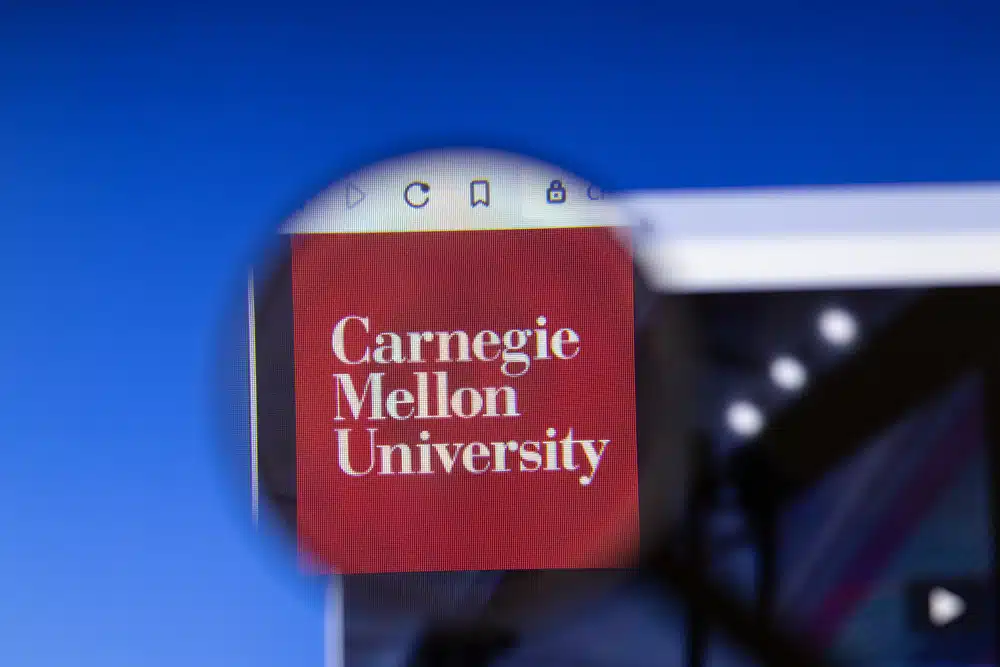
Carnegie Mellon University, renowned for its innovative approach to education and a strong emphasis on research and technology, stands out as a leading institution of higher learning. In the realm of college admissions, the supplemental essays hold significant weight, serving as a window into the applicant’s personality, intellect, and potential contributions to the campus community.
For the 2023-2024 admissions cycle, Carnegie Mellon has crafted prompts that are both challenging and opportunity-rich, designed to elicit thoughtful and revealing responses from prospective students. At the heart of these supplemental essays are questions that probe into the candidates’ motivations, aspirations, and self-perceptions.
Carnegie Mellon’s prompts are notably open-ended compared to many other universities, offering a unique canvas for students to paint a vivid picture of their academic passions, personal journeys, and future ambitions. Understanding and responding effectively to these prompts is crucial for applicants wishing to stand out in a pool of highly qualified candidates.
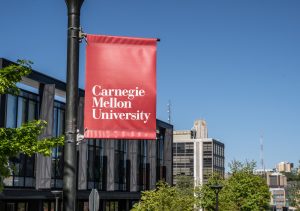
Applying to Carnegie Mellon
Carnegie Mellon only accepts applications through the Common Application , and you need to submit your application online.
Make sure to check the application plans, deadlines, and admission requirements for Carnegie Mellon . If you’re applying to the Schools of Architecture, Art, Design, Drama, or Music, please also look at the College of Fine Arts applicant information.
Remember, Drama and Music applicants have a December 1 deadline for Regular Decision. When you apply, you’ll get an email within one to five business days from the Office of Admission confirming they’ve received your application. This email will help you track your application’s progress.
How Many Supplemental Essays Does Carnegie Mellon Have?
For the 2023-24 admissions cycle, Carnegie Mellon University requires applicants to complete three supplementary essay prompts. Each of these essays is limited to 300 words. These essays are an integral part of the application process, giving applicants the opportunity to showcase their individual strengths and aspirations in relation to what CMU offers.
What are the Carnegie Mellon Supplemental Essays 2023-2024?
Most students choose their intended major or area of study based on a passion or inspiration that’s developed over time – what passion or inspiration led you to choose this area of study? (300 words)
Many students pursue college for a specific degree, career opportunity or personal goal. Whichever it may be, learning will be critical to achieve your ultimate goal. As you think ahead to the process of learning during your college years, how will you define a successful college experience? (300 words)
Consider your application as a whole. What do you personally want to emphasize about your application for the admission committee’s consideration? Highlight something that’s important to you or something you haven’t had a chance to share. Tell us, don’t show us (no websites please). (300 words)
Answering the 2023-2024 Carnegie Mellon Supplemental Essay Prompts
Most students choose their intended major or area of study based on a passion or inspiration that’s developed over time – what passion or inspiration led you to choose this area of study?
This prompt is primarily about understanding the underlying motivations and inspirations that have led a student to choose their intended major or area of study. It seeks to explore the depth of the student’s interest in the subject and how this interest has evolved over time. The aim is to gauge not just the student’s commitment to the field but also to understand the personal journey and experiences that have shaped their academic choices.
Here are four key points for students to consider while brainstorming and answering this prompt, with detailed explanations for each:
1. Identify the Origin of Your Interest: Begin by reflecting on when and how your interest in the chosen field started. Was it a particular event, a class in school, a personal project, or an encounter with a work in this field that sparked your curiosity? Detailing this origin story gives the admissions committee a glimpse into your personal journey and helps them understand the sincerity and depth of your passion.
2. Describe Key Milestones and Experiences: Discuss specific experiences, projects, or challenges that furthered your interest in this field. This could include relevant classes, extracurricular activities, internships, personal projects, or even influential books or conversations. Describe how these experiences contributed to your growing interest and understanding of the subject. This shows the progression of your passion over time.
3. Connect Your Interest to Your Personal Values or Goals: Explain how your chosen field aligns with your personal values, life goals, or future aspirations. This connection demonstrates a deeper level of reflection and shows that your choice of study is not just a passing interest but is integral to who you are and who you want to become.
4. Reflect on What Makes Your Perspective Unique: Finally, consider what unique perspective or experiences you bring to this field. How does your background, culture, or personal experiences inform your approach to this area of study? This helps in showcasing your individuality and how your unique perspective can contribute to the diversity of thought in the university community.
Remember, the key to a compelling response is authenticity and specificity. It’s not just about stating an interest but illustrating it through your personal story and experiences.

Many students pursue college for a specific degree, career opportunity or personal goal. Whichever it may be, learning will be critical to achieve your ultimate goal. As you think ahead to the process of learning during your college years, how will you define a successful college experience?
This Carnegie Mellon essay prompt is fundamentally about understanding and articulating personal goals and aspirations in the context of a college education. It invites students to reflect on what they consider a successful college experience, beyond just obtaining a degree. Here are four key points students should consider when answering this prompt:
1. Define Personal and Academic Goals: Students should start by clearly defining their personal and academic goals. This could involve specific skills they want to acquire, career paths they aspire to, or personal development they hope to achieve through their college education. For instance, a student interested in computer science might discuss aspirations to contribute to groundbreaking technology developments or the desire to acquire skills in both technical and leadership areas.
2. Emphasize the Importance of Learning: The prompt places a strong emphasis on learning as a critical component of college success. Students should reflect on how they approach learning – not just in academic terms, but as a lifelong process. They might discuss their enthusiasm for engaging with diverse ideas, their commitment to overcoming challenges in their studies, or how they plan to apply classroom knowledge to real-world problems.
3. Incorporate College Resources and Opportunities: It’s important to link personal goals with specific resources and opportunities offered by Carnegie Mellon. Students could mention unique programs, clubs, or research opportunities that align with their goals. For instance, if a student is interested in entrepreneurship, they could talk about how participating in Carnegie Mellon’s entrepreneurial ecosystem will contribute to their success.
4. Reflect on Personal Growth and Contributions to the Campus Community: Lastly, students should consider how they will grow as individuals and contribute to the campus community. This could involve discussing their desire to engage with diverse perspectives, contribute to campus organizations, or develop leadership skills through campus activities. The aim here is to show a holistic view of success that combines personal achievement with community involvement.
By covering these aspects, students can create a comprehensive and compelling response that showcases their ambitions, understanding of the learning process, and how they envision making the most of their college experience at Carnegie Mellon.
Consider your application as a whole. What do you personally want to emphasize about your application for the admission committee’s consideration? Highlight something that’s important to you or something you haven’t had a chance to share. Tell us, don’t show us (no websites please).
This is an open-ended question that allows applicants to showcase unique aspects of their personalities, experiences, or qualifications that might not be evident in the rest of their application. This question is about giving students the opportunity to highlight a part of their story, identity, or achievements that they feel is significant and would contribute to their profile as a desirable candidate.
Here are four key points for brainstorming and detailed explanations for each:
1. Personal Growth or Challenges Overcome: Encourage students to reflect on a personal challenge or a significant growth experience. This could be overcoming a personal obstacle, dealing with a family situation, or a significant personal achievement. The key is to focus on how the experience shaped them, what they learned, and how it has prepared them for college. For example, overcoming a fear, dealing with the loss of a loved one, or managing a learning disability. This narrative should demonstrate resilience, maturity, and self-awareness.
2. Passion Projects or Extracurricular Involvements: Students can highlight a project or activity they are deeply passionate about but haven’t had the space to discuss in other parts of their application. This could be an independent research project, a community service initiative, a creative endeavor, or leadership in an extracurricular activity. The emphasis should be on the impact of this involvement, how it aligns with their academic and career goals, and what it reveals about their character. For example, starting a community clean-up program or developing an app to solve a local problem.
3. Unique Skills or Talents: If a student has a unique skill or talent that sets them apart, this prompt is a great place to discuss it. This could be anything from fluency in multiple languages, exceptional artistic abilities, or even unconventional skills like coding or robotics. The idea is to showcase how these skills have been developed and used in meaningful ways. For example, using multilingual skills to bridge communication gaps in their community or applying artistic talents in local events.
4. Cultural or Family Background: Students can use this prompt to highlight aspects of their cultural or family background that have significantly influenced their perspectives and aspirations. This can include traditions, values, or experiences unique to their family or community. It’s important to focus on how this background has shaped their worldview, contributed to their educational goals, and prepared them to contribute to a diverse college community. For example, growing up in a multicultural household or engaging in cultural community events.
In answering this prompt, students should aim to be authentic, reflective, and specific, connecting their chosen topic back to their overall candidacy and potential contributions to Carnegie Mellon’s community.

Structuring Your Supplemental Essays
The structure of supplemental essays is crucial in conveying an applicant’s message effectively and making a memorable impression. For the Carnegie Mellon supplemental essays for the 2023-2024 admissions cycle, a well-structured essay can make the difference between an application that stands out and one that gets lost in the pile. Here are three key points on how applicants can structure their Carnegie Mellon supplemental essays:
1. Introduction: Begin the essay with a compelling narrative or anecdote that directly relates to the prompt. This not only engages the reader but also sets a personal tone for the essay. For instance, if a student is writing about a challenge they’ve overcome, they might start with a vivid description of a moment that epitomizes that challenge . This approach not only grabs attention but also immediately immerses the admissions committee in the student’s world. It’s essential that this narrative seamlessly leads into the main theme of the essay, providing a natural flow into the subsequent sections.
2. Thematic Body Sections: After the engaging start, the body of the essay should be organized into clear, thematic sections. Each section should focus on a specific aspect of the topic, providing depth and detail. For instance, in a Carnegie Mellon supplemental essay, one section could delve into how the applicant’s experiences have shaped their academic interests, another could discuss skills or qualities they’ve developed, and a third could explore how these elements align with the opportunities at Carnegie Mellon. Using clear, thematic sections helps maintain a focused and coherent narrative, making it easier for the admissions committee to follow and appreciate the student’s story and aspirations.
3. Reflective and Forward-Looking Conclusion: The conclusion should not only summarize the key points discussed but also reflect on what the student has learned and how it prepares them for a future at Carnegie Mellon. This section should tie back to the introduction, creating a full-circle effect that leaves a lasting impression. For example, the conclusion could revisit the initial narrative and reflect on how the student’s journey has prepared them for the unique challenges and opportunities that Carnegie Mellon offers. It’s also an opportunity to explicitly state why Carnegie Mellon is the right fit for them, based on the specific programs, culture, or opportunities the university provides.
In structuring their Carnegie Mellon supplemental essays for the 2023-2024 cycle, applicants should ensure that their essays are not only well-organized and coherent but also showcase their personality, experiences, and fit for the university. A well-structured essay will flow logically, keep the reader engaged, and effectively communicate the student’s unique story and aspirations.

How to Effectively Revise and Proofread
Effectively revising and proofreading essays is a critical step in crafting a compelling and error-free application. For students applying to Carnegie Mellon for the 2023-2024 cycle, ensuring that their supplemental essays are polished and impactful is especially important. Here are four detailed strategies for revising and proofreading Carnegie Mellon supplemental essays:
1. Layered Review Approach: Break down the revision process into multiple layers. The first layer should focus on content and structure. Does the essay answer the prompt fully? Is there a clear and logical flow of ideas? The second layer should examine the style and voice. Is the essay reflective of the student’s personality? Does it maintain a balance between formality and personal expression? The final layer should be about language and clarity. Are there any complex or unclear sentences that could be simplified for better understanding? This approach ensures that each aspect of the essay is thoroughly reviewed.
2. Feedback from Multiple Sources: Obtain feedback from various individuals such as teachers, peers, or family members. Each person will bring a different perspective. For instance, a teacher might provide insights on the academic soundness of the essay, while peers might focus on how relatable and genuine the essay feels. When collecting feedback, specifically ask reviewers to look for different aspects: content accuracy, emotional impact, and language use. This varied input can be invaluable in enhancing the overall quality of the Carnegie Mellon supplemental essays.
3. Focused Proofreading Sessions: Instead of trying to catch every error in one go, conduct multiple, focused proofreading sessions. In each session, concentrate on one specific type of error: first spelling, then grammar, then punctuation, and finally, formatting. This methodical approach reduces the cognitive load and increases the likelihood of catching more errors. Tools like Grammarly or Readable can be used to assist in this process, but they should not replace human judgment.
4. Temporal Distance: After writing the essay, take a break from it for a few days before revising. Approaching the essay with fresh eyes can make a significant difference in identifying areas that need improvement. When the student returns to their essay, they are more likely to notice awkward phrasing, repetitive information, or off-topic content. This temporal distance helps in achieving a more objective and critical review of their own work.
For applicants to Carnegie Mellon’s 2023-2024 cycle, these strategies in revising and proofreading can greatly enhance the quality of their supplemental essays. It’s not just about fixing errors but refining the essay to ensure it best represents the student’s abilities, experiences, and fit for Carnegie Mellon.
Why Choose Carnegie Mellon?
Carnegie Mellon University is a place where education and research come together in exciting ways. It’s not just a university; it’s a hub of innovation and creativity. Let’s dive into what makes Carnegie Mellon so special:
1. Outstanding Global and National Rankings: Carnegie Mellon isn’t just another university; it’s a top-ranked institution both in the United States and around the world. According to the QS World University Rankings for 2023, it stands proudly at number 52 globally. The Times Higher Education World University Rankings of 2023 places it even higher, at 28th worldwide and 19th among U.S. colleges. Additionally, the U.S. News & World Report’s 2022-2023 Best Colleges Rankings lists it as the 22nd-best National University in the U.S. These rankings highlight the university’s excellence and global recognition.
2. Strength in Programs and Innovation: When it comes to specific subjects, Carnegie Mellon shines even brighter. It’s a leader in computer science, and ranked as the top university for undergraduate studies in this field. Innovation is another area where it excels, ranking third among the most innovative universities. The university also boasts strong programs in undergraduate business, engineering, business analytics, and management information systems, making it a powerhouse in various academic disciplines.
3. A Leader in Research: Carnegie Mellon is not just about learning from books; it’s about creating new knowledge. It’s recognized for its outstanding research, ranking high in research reputation. In fact, it’s among the top in the world in 16 different research areas, making it a great place for students who are keen on exploring and discovering new things.
4. Diversity and Inclusivity: With about 14,000 undergraduate students from various corners of the globe, Carnegie Mellon is a melting pot of cultures and ideas. This diverse student body creates a rich, multicultural learning environment where students can learn as much from each other as they do from their courses.
5. Interdisciplinary Approach: One of the unique things about Carnegie Mellon is how it encourages students to blend and merge different fields of study. This interdisciplinary approach means students get a well-rounded education, preparing them for the complex, interconnected world we live in.
6. Vibrant Campus Life: Situated in Pittsburgh, Carnegie Mellon’s campus is a unique mix of city vibes and suburban tranquility. It’s not just a place to study; it’s a community where students can live, learn, and grow in an environment that is both stimulating and supportive.
Overall, Carnegie Mellon University offers a dynamic, top-quality education marked by excellent program rankings, a commitment to innovation, abundant research opportunities, and a diverse, interdisciplinary community. It’s an institution where students are challenged, inspired, and prepared for successful futures in a variety of fields.

How Important are Supplemental Essays in the College Admissions Process?
Supplemental essays are a crucial element in the college admissions process, especially for renowned institutions like Carnegie Mellon. For the 2023-2024 admissions cycle, the role of these essays cannot be overemphasized. They serve as a unique platform for applicants to add personalization to their applications, going beyond the quantitative data of transcripts and test scores. These essays allow students to share their unique stories, experiences, and aspirations, offering a vivid portrait of their personality and potential. For example, a student might use their essay to detail a particular project or experience that sparked their interest in a field of study at Carnegie Mellon, providing a compelling narrative that distinguishes their application.
Moreover, supplemental essays enable students to demonstrate their specific interest in Carnegie Mellon, showcasing how they align with the university’s culture, values, and academic programs. Thoughtful and well-researched responses to essay prompts can convincingly illustrate a student’s understanding of what makes Carnegie Mellon unique and why they are a perfect fit for it. For instance, an applicant might articulate how the university’s interdisciplinary approach resonates with their own learning style and career aspirations.
The essays also provide an opportunity for students to showcase their writing skills and critical thinking abilities. Carnegie Mellon highly values these skills, as they are indicative of a student’s readiness for the academic rigors they will encounter. The way an essay is constructed—how ideas are presented, the clarity of arguments, and the overall writing style—offers the admissions committee valuable insights into an applicant’s intellectual capabilities and potential contributions to campus dialogues.
Lastly, supplemental essays can be strategically used by students to address any potential weaknesses in their applications or to further underscore strengths and unique achievements. For some, it’s a chance to explain how personal challenges have prepared them for college life, while for others, it’s an opportunity to expand on significant accomplishments or projects that highlight their potential as a future Carnegie Mellon student.
In essence, the Carnegie Mellon supplemental essays for the 2023-2024 admissions cycle are a critical component of the application. They offer students the chance to present a well-rounded and authentic picture of themselves, making a persuasive case for why they are an ideal match for the university. Far from being mere formalities, these essays can significantly impact the chances of admission , allowing applicants to stand out in a highly competitive applicant pool.
How Do Carnegie Mellon’s Supplemental Essays Compare to Others?
Carnegie Mellon’s supplemental essays for the 2023-2024 admissions cycle have distinct characteristics that set them apart from those of other top universities. While many elite institutions use supplemental essays to gain deeper insights into applicants beyond their grades and test scores, Carnegie Mellon’s prompts tend to emphasize practical creativity and intellectual curiosity, reflecting the university’s strong focus on innovation and interdisciplinary study.
For instance, unlike the broad and reflective prompts often seen in Ivy League schools like Harvard or Yale , where students are encouraged to delve into personal life philosophies or intellectual experiences, Carnegie Mellon’s prompts are more targeted. They often ask students to discuss specific aspects of their academic interests, career goals, or personal projects. This approach mirrors the university’s pragmatic and forward-thinking ethos, evident in its renowned programs in technology, science, and the arts.
Similarly, while Stanford University is known for its creative and sometimes unconventional essay questions that challenge students to think outside the box, Carnegie Mellon’s supplemental essays are more straightforward, aligning with the university’s emphasis on clarity of thought and purpose. This difference can be attributed to Carnegie Mellon’s unique blend of artistic creativity and technological innovation, which demands a certain level of directness and practicality in thinking.
Moreover, compared to schools like the University of Chicago , known for its intellectually rigorous and often quirky essay prompts, Carnegie Mellon’s essays tend to be more grounded and closely tied to the applicant’s specific interests and experiences, especially in relation to their intended field of study. This focus reflects the university’s commitment to preparing students for real-world challenges and its expectation that applicants demonstrate a clear vision for how they intend to utilize their education.
In essence, while other top universities might use their essays to probe into the philosophical and abstract thinking of their applicants, the Carnegie Mellon supplemental essays for the 2023-2024 cycle are more reflective of the university’s practical and interdisciplinary approach.
They ask students to clearly articulate their passions, how these align with what Carnegie Mellon offers, and how they foresee their experiences at the university shaping their future. This distinction underscores Carnegie Mellon’s unique position in higher education as an institution deeply rooted in practical innovation and interdisciplinary collaboration.
The supplemental essays for Carnegie Mellon University’s 2023-2024 admissions cycle offer a unique opportunity for applicants to showcase their individuality, intellectual curiosity, and alignment with the university’s ethos. These prompts, while challenging, provide a platform for students to narrate their academic and personal journeys, articulate their future aspirations, and highlight unique aspects of their experiences and perspectives.
Applicants should approach these essays with introspection, creativity, and authenticity, ensuring that each response adds depth and dimension to their overall application. The goal is to present a compelling, coherent narrative that resonates with the admissions committee, demonstrating not only the applicant’s suitability for Carnegie Mellon but also their potential to contribute meaningfully to the university community.
With thoughtful preparation and attention to detail, these essays can be a decisive factor in the admissions process, turning aspirations of attending Carnegie Mellon into reality.

AdmissionSight , a college consulting firm, offers personalized assistance to students in their college admissions journey. We help you create a strategic plan for your application process, identify suitable schools aligned with your academic and personal goals, and prioritize your application strategy.
Our experts review your application, providing constructive feedback to enhance its quality and uniqueness. We also assist in crafting compelling essays that reflect your personality and achievements, guide you through the writing process, and offer feedback on drafts. In addition, we provide interview coaching to boost your confidence and readiness for college interviews, offering tips on professional presentation and answering common questions.
We aid in optimizing your extracurricular activities to align with your interests and goals, emphasizing leadership and initiative. Overall, AdmissionSight offers valuable guidance and support to increase your chances of college acceptance. With a strong network and a success rate exceeding 75% in the past decade, book a free initial consultation today!
Want to assess your chances of admission? Take our FREE chances calculator today!

Why College Admissions Isn’t Perfect

US News Rankings

The Personal Statement: The Holy Grail of College Admissions

The Modern Day 4.0 and 1600 SAT Score Student Is No Longer Impressive

The Competitive Nature of College Admissions for Asian Americans

The College Application

Our Comprehensive Approach

Ivy League Schools

How Early Should You Prepare for College?

Featured in US News & World Report Best Colleges Publication

Congratulations to AdmissionSight Students and their Acceptances!

College Rejection

College Rankings

College Consultants Could Make A Difference

College Admissions Scandal and Higher Education

Where is Boston University Located?

Top 10 Undergraduate Business Programs

Where is Claremont McKenna Located?
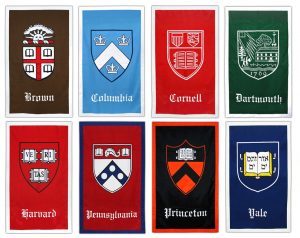
Ivy League Rankings 2024

10 Humanities Programs for High School Students

Where is Georgia Tech located?

How to Qualify for National Merit Semifinalist 2025

Where Is Harvey Mudd Located?

Where is the University of Virginia located?

Where is Wake Forest located?

Where is the University of Michigan located?

How to Update Caltech After Submitting Your Application

How to Update Yale After Submitting Your Application

What Are the Score Choice Policies at Top 50 Universities?
How to update mit after submitting your application.
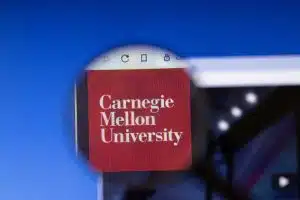
Where is Carnegie Mellon University located?

How to Apply to LaunchX
Leave a comment cancel reply.
Your email address will not be published. Required fields are marked *
Save my name, email, and website in this browser for the next time I comment.
Recent Articles

10 Humanities Programs for High...

How to Qualify for National...

Where is the University of...

How to Update Caltech After...
Sign up now to receive insights on how to navigate the college admissions process..

Admissions Counseling
- Academic & Extracurricular Profile Evaluation
Copyright © AdmissionSight 2024
Privacy Policy - Terms and Conditions
What are your chances of acceptance?
Calculate for all schools, your chance of acceptance.
Your chancing factors
Extracurriculars.
5 Carnegie Mellon Essay Examples
What’s covered:, essay example #1 – computer science, essay example #2 – healthy self-definition, essay example #3 – future business major, essay example #4 – future international relations major.
- Essay Example # 5 – Politics
- Where to Get Your Carnegie Mellon Essay Edited
Carnegie Mellon University (CMU) is a school with both impressive technical programs and outstanding creative programs. Because of the university’s multifaceted academic success and the tremendous opportunities students have after graduation, CMU is highly renowned and boasts a low acceptance rate.
In this post, we will go over essays real students have submitted to Carnegie Mellon. We will also share what each essay did well and where they could be improved to inspire your writing. Names and identifying information have been changed, but all other details are preserved.
Please note: Looking at examples of real essays students have submitted to colleges can be very beneficial to get inspiration for your essays. You should never copy or plagiarize from these examples when writing your own essays. Colleges can tell when an essay isn’t genuine and will not view students favorably if they plagiarized.
Read our Carnegie Mellon essay breakdown to get a comprehensive overview of this year’s supplemental prompts.
Prompt: Many students pursue college for a specific degree, career opportunity, or personal goal. Whichever it may be, learning will be critical to achieving your ultimate goal. As you think ahead to the process of learning during your college years, how will you define a successful college experience? (300 words)
7:30 am… As I open my eyes, I look at the pinboard in front of my bed. Written in red block letters are two of the many goals of my life: “Make life better and more independent for the Visually impaired; Inspire kids to explore the field of STEM, making them the future problem solvers.”
9:00 am… Keeping these goals afresh in mind, I freshen up and get ready for the first class of the day, 16-385 Computer Vision, with Professor Ioannis Gkioulekas. As he explains the Applications of Neural Networks in Object identification, a light bulb sparks in my mind: I can modify the head contraption of SPECULUR to identify objects in peripheral vision and alert the wearer via an earpiece using Text to Speech (TTS).
1:00 pm… After class, I find myself at the CI2CV Lab for Computer Vision, where I brainstorm ways to implement my idea successfully. Frustrated after repeatedly getting bugs in my algorithm, I am surrounded by problem-hungry tartans ready to collaborate with me in no time.
3:00 pm… After lunch, I head off to the Gates and Hillman complex to meet up with Gavin Deiss, an executive board member at Teknowledge, as we discuss ways to open teacher positions for high school students. I propose, “We can include students from AiGoLearning India and teach them a global coding curriculum.”
For me, a successful college learning experience at CMU comprises many things like exploring the unparalleled curriculum, innovative labs, and facilities. However, above all is the resource of people, including my fellow tartans and scholarly professors. The diverse experiences and unique backgrounds they bring cannot be found anywhere else; hence I want to assimilate all the insights I can gather from them, during my time at CMU.
What the Essay Did Well
If you are looking for a way to play with the structure of your essay, this is a great way to go! By describing their ideal day at CMU, we get to see this student’s interests, motivations, aspirations, and drive. Not only that, the essay flows nicely and effortlessly transitions to new ideas by jumping ahead in the schedule.
When students try to employ this schedule-style of an essay they often just discuss their class schedule and maybe an extracurricular activity. This is good, but this student goes above by starting the essay in their dorm and clearly showing us what motivates them with their sticky notes: “ Make life better and more independent for the Visually impaired; Inspire kids to explore the field of STEM, making them the future problem solvers.” They also include them working at a lab outside of class, which is a nice bridge between their academic and extracurricular interests.
Although they only highlight three opportunities at CMU, the level of detail and elaboration for each one is infinitely more important than a long list of classes and clubs. When they discuss the class, the student incorporates key topics from the class and explains an original idea they develop as a result of being in class. Notice how that’s a bit different than simply name-dropping the course and professor? We also get told about them finding bugs in the algorithm (a common experience that humanizes the student) and we get snippets of a conversation they have at their meeting.
The structure this student chose serves this essay very well until the final paragraph. Breaking from the established pattern of following a daily schedule abruptly disturbs the flow of the essay and makes the ending more mundane than the preceding paragraphs. To fix this, the student should have kept the same style throughout their response.
They don’t need to tell us “ a successful college learning experience at CMU comprises many things like exploring the unparalleled curriculum, innovative labs, and facilities, ” because we saw that in each paragraph. The important aspect of their conclusion is the “ resource of people ,” as they say. This could have been highlighted in a paragraph like this:
“ 8:00pm… Squished between friends from my Biomedical Engineering class and my badminton club on the couch in the common room, I take in the diverse perspectives all coming together to settle the argument of East Coast versus West Coast once and for all. Where else but here would I be a part of such a colorful community?
11:30pm… I drift off to sleep, excited to do it all again tomorrow. “
Prompt: Consider your application as a whole. What do you personally want to emphasize about your application for the admission committee’s consideration? Highlight something that’s important to you or something you haven’t had a chance to share. Tell us, don’t show us (no websites please). (300 words)
I will never forget the feeling I had in Kindergarten when I received a failing grade because I couldn’t answer the question “where do you live?” It was a simple question, one that my classmates answered with ease. I was, however, struck by the recounting of my private home life. The 2009 recession left my family homeless and broke, living in the basement of a close friend. While we were fortunate to have somewhere to sleep, my family, especially me, internalized the negative sentiments from everyone we knew at the time. While my Kindergarten teacher didn’t mean any harm, the question reinforced my feeling of inferiority. No matter what I said, there were serious diminutions to my character: being honest about my homelessness or being dishonest about my own circumstances. I ultimately responded with the latter, saying “I don’t know.”
That day, I accepted the failing grade, and this moment became a stepping stone to a now valuable trait: healthy self-definition. Healthy self-definition relies on improving the objective truths of myself and fixing lacking characteristics into better ones. Lying to my Kindergarten teacher wasn’t healthy nor ethical to do, but the action of choosing who I wanted to be sparked the desire for healthy self-definition throughout high school. For example, I redefined myself from a dispassionate pianist to an authentic music producer. I used track and field to redefine my lack of athleticism growing up and eventually became a top-three sophomore 400-meter hurdler at my school. I had extreme social anxiety, so I used the Tech in Music Club to redefine my social ability and practice leadership and public speaking skills. In all weak aspects of my character and identity, I improved and continue to improve through these healthy redefinitions. Like Kindergarten me, I refuse to be defined by my circumstances.
This essay’s main strength is its content. At its core, this essay tells a beautiful story where a student transformed tragic circumstances into tremendous self-growth. That is exactly the kind of student that a university wants to admit!
The prompt here is very open-ended. From the point of view of admissions, it asks “what else do you want to tell us?” To a student, this can be read as “what additional information will help us get to know you and want you ?” This student identified their ability to see weaknesses as opportunities for improvement—which they label “healthy self-definition”—as something CMU would want, then used a specific anecdote to show that ability.
In addition to the content, this student followed a tried-and-true essay structure that allowed for an engaging, yet reflective essay. Opening with an anecdote, looking back on the experience, explaining the broader implications, and then tying the conclusion back to the anecdote is a simple, but effective, structure to use for your essay.
What Could Be Improved
While the anecdote/reflection structure can facilitate an engaging essay, this student falls flat with their static writing. Essentially, the story is engaging, but the way the student writes it doesn’t do it justice. It’s repetitive, confusing, and a bit boring at times.
For example, in the first paragraph, the following phrases and sentences are all getting at the same idea and could be condensed into one concise sentence:
- “I was, however, struck by the recounting of my private home life.”
- “…my family, especially me, internalized the negative sentiments from everyone we knew at the time…”
- “…the question reinforced my feeling of inferiority…”
With regards to the second paragraph, the student introduces a value that they call “ healthy self-definition. ” When describing “ healthy self-definition, ” the student is simultaneously repetitive and unclear. The current writing requires too much energy on the part of the reader to parse through what is being said. If the student provided a concise definition of “healthy self-definition” before giving the examples from their life, this paragraph would work better.
With some simple reorganization and more dynamic writing, the paragraph could be as follows:
“That’s when I established a personal value that I now call “healthy self-definition”—of course, it took about a decade for five-year-old me to figure out the name for my value. Healthy self-definition, at its core, means that I take time to identify my weaknesses, then redefine them as strengths. I acknowledge who I am, then find opportunities for improvement.
I’m a dispassionate pianist, turned authentic music producer. I’m a struggling athlete, turned “top-three Cedar High hurdler.” I used to nervously linger at the back of club meetings, but now I run the very same meetings. No one could dare call me weak when I’m constantly redefining my weaknesses as strengths. Just like Kindergarten me, I will not be defined by my circumstances.”
Prompt: Most students choose their intended major or area of study based on a passion or inspiration that’s developed over time – what passion or inspiration led you to choose this area of study? (300 words)
In fifth grade, my mother arranged a business for me and some friends. We must support a local business and donate our profits towards a good cause. Three ten-year-old kids, with money borrowed from our parents, purchased handmade crafts and ornaments made by disabled workers to resell. I led the operation. Scheduled for several weekends at a public market square, the commerce commenced. Despite my excitement running my first ever business, as the night arrived and the market awoke from its peaceful slumber, surging stranger anxiety stumped me. With adults swamping the space, my body unconsciously cowered. Embarrassment overwhelmed me, and I stood only able to stare at passing customers with my lips sewn shut. After the first night, three kids on the verge of tears sold two knitted dolls. My mother, sensing a crumbling business as its workers became paralyzed by fear, advised me, “As a leader, your job is to accomplish your goals not by yourself, but with your team.” Though not the typical cheers, my mother’s words roused the leader from within me. Wiping away my tears, I reconvened the team and restrategized. We assigned responsibilities: attracting customers, advertising, and collecting payments. Writing out our sales pitches and practicing with each other, we reunited with the sight of profits. The second weekend started: to every corner of the streets, we asked every possible customer. Our efforts paid off. At the end of that night, we sold out. Next weekend, us businessmen along with our parents went shopping using our profits. Looking at the Barbie dolls, stuffed animals, and model cars neatly wrapped, I proudly dropped the Christmas gifts at the local children’s cancer hospital. My first business endeavor taught me a crucial purpose of entrepreneurship: the ability to strengthen networks of people and make positive social changes.
This essay prompt is the classic “Why This Major?” essay, which asks you to detail your interest in the field and your professional goals. The writer elaborates on their motivation to pursue entrepreneurship through a fitting anecdote about their first time leading a business.
The author shares genuine reasons that make entrepreneurship exciting to them, such as developing leadership skills and making positive social change. These are authentic reasons for pursuing their major that stay away from the superficial motives for pursuing a major such as money or prestige.
Additionally, throughout this entire essay the writer keeps their audience captivated by employing strong use of imagery. It almost feels as if one is right in the middle of the market with the writer as they struggle to navigate the chaos of the market. The line “Embarrassment overwhelmed me, and I stood only able to stare at passing customers with my lips sewn shut” makes the reader feel just as anxious as the author is in the moment. And it feels even better to the reader when the author sells out the entire stock of crafts and ornaments the following night and donates the money to charity.
As the essay progresses, it’s hard not to wonder what is going to happen next, and the story strings together very nicely, despite having a limited word count. By the end of the essay, the reader has a better understanding of why this student has chosen to pursue entrepreneurship, because they have shared an exciting lived experience that captures the ups and downs of a fast-paced, turbulent major.
All in all, this essay was well written and the author’s point came across well. However, a few items could be slightly improved, including a few syntax errors, poor transition statements and slight thematic inconsistency.
The second sentence of this essay “We must support a local business and donate our profits towards a good cause” appears a bit out of place and may be better suited in quotes as the mother appears to be speaking these lines. Alternatively, the writer could have rephrased to something like “We were tasked with supporting a local business…”
Similarly, in the last sentence, the author says their motivation for pursuing entrepreneurship is the “ability to strengthen networks of people,” when it may have been more succinct and less clunky to say something along the lines of “the ability to bring people together.”
Another area of improvement for the essay comes in the middle, when the author’s mother “roused the leader” within them. The author could have expanded on why their mother’s words roused them to overcome the daunting obstacle, but instead missed the opportunity to explain why they felt inspired to continue selling ornaments at the marketplace. The author may have even suggested that by overcoming their challenges at the market, they would accomplish their ultimate goal of donating their profits to charity, highlighting their sense of altruism.
The final sentence even states that the author intends to pursue entrepreneurship to make a positive social impact. However, in a thematic sense, this idea is not consistently present throughout the essay. If the author were to include more details about their desire and motivation to donate their profits to charity throughout the essay, this point would have been much more understandable.
Finally, the essay is hard to follow because it’s only one paragraph. The flow would’ve been improved if the author broke the essay up into a few shorter paragraphs.
At 8 years old, I learned that Democrats were donkeys and Republicans were elephants. By 11, I had decided which one I wanted to be. By 14, I discovered I didn’t have to be an elephant or a donkey—the political world was not black and white, but instead multifaceted with many moving parts. As I explored programming through high school, I learned how politics and computer science could be intertwined to enact change exponentially. For the Congressional App Challenge, I developed the winning app, which allows parents to sustainably trade outgrown children’s clothing. Everything in this process, from surveying real families with this need to perfecting the front end design, showed me how coding could easily be geared toward social progress.
Beyond programming, interning for a state non-profit encouraging Muslims to participate in politics showed me the real potential of computational politics. Big data analysis was a common skill I utilized when encouraging people to vote in the 2022 general election. What furthered my interest was attending a Kode With Klossy event in New York City: I not only spent the day workshopping with Swift and iOS app development, but also heard the stories of activist Sofia Ongele, a pioneer for young women in STEM.
Discussing sanctions and China’s Uyghur Muslim crisis with U.S. Representative Jim McGovern was my first look into the workings of international conflict resolution. The power systems behind diplomacy became a point of fascination for me. Whether it was marching miles chanting “No Justice, No Peace” in June 2020 or debating as Elizabeth Warren in my ninth grade mock democratic primary, I have taken every stride to involve myself politically. Majoring in international relations and politics and minoring in science, technology and society at Carnegie Mellon is the next step in furthering my involvement.
This essay is another great example of the “Why This Major?” archetype. The author shares why the intersection of technology and politics is the perfect fit for her, through her unique experiences and background.
The introduction is a captivating one, which follows her evolving understanding of politics. Starting with a simplistic view of “Democrats as donkeys and Republicans as elephants” at a young age, the writer matures and recognizes the complexity of the political landscape as she enters high school. This progression implicitly showcases her thoughtfulness and willingness to challenge existing beliefs which are critical to any career in politics and international relations.
Additionally, the essay adeptly integrates the realms of computer science and politics. The author provides a unique combination of academic interests that most applicants would otherwise shy away from. The writer’s successful development of an app for the Congressional App Challenge exemplifies her ability to utilize coding for social progress. By mentioning the process of surveying real families and refining the front-end design, the writer illustrates her comprehensive approach and shows how coding can be harnessed as a tool for enacting positive social change.
Finally, the author provides more unique experiences that reveal her true passions for politics and technology. She references her experiences during the 2022 election and Kode With Klossy events which each relied on bringing together both her academic interests. In the final paragraph, the author provides even more evidence to her experience in the political realm which drive home the point about her interest in her major as well as show accomplishments in a specific area which are hard to come by for most students.
From initial impressions, this essay is great at providing sufficient evidence as to why this author is pursuing international relations and politics with a minor in technology. However, one suggestion for this author, and general advice for any applicant, is not to fall into the trap of simply recapitulating all of one’s resume in an essay. This author has unfortunately used most of the 300 word count to list out her experiences and qualifications, but misses out on key opportunities to expand upon how these experiences have shaped her perspective and developed her interests over time.
In general, there is a lack of reflection on the lessons learned from the various experiences mentioned. While the writer describes her involvement in protests, debates, and internships, there is limited discussion of the personal growth and insights gained from these activities. The author has experiences including “ winning the Congressional App Challenge, to marching miles chanting ‘No Justice, No Peace’ in June 2020 or debating as Elizabeth Warren in [her] ninth grade mock democratic primary,” which could all be powerful standalone experiences for a 300-word essay. Adding a reflective element to the essay would provide a deeper understanding of the writer’s development and demonstrate their ability to learn from their experiences.
For example, the author could remove a few activities from her essay and expand upon the experience of winning the Congressional App Challenge, discussing her thought process and emotions during the development of the app, or the impact it had based on feedback from families. Here’s an example of an excerpt that would’ve made this section stronger:
“I decided to use the app for myself to clear out the bags of my younger brother’s baby clothes in the basement. A young immigrant mother responded to my post, saying that she hadn’t been able to afford properly-fitting baby clothes for her toddler son. A week after she picked up the bags, the mother returned with her giggly son in his ‘new’ clothing. The mother was full of gratitude, and I was just as grateful for this experience as it showed me the direct impact coding could have on improving real lives and making social progress.”
By incorporating specific examples and adding reflective elements, the essay would become more compelling, allowing the reader to better understand the writer’s experiences and their personal growth. These adjustments would enhance the overall quality of the essay and provide a vivid and engaging narrative.
Essay Example #5 – Politics
At Carnegie Mellon, I see myself defining a college experience in which I can widen my career goals in politics and learn from real-world experiences. D.C. is where I hope to work following college, as there is no place better than our capitol to explore the inner workings of decision-making in government. Through CMU’s Washington Semester Program (WSP), I aim to intern with a member of Congress to expand my understanding of the legislative process and gain experience in the nation’s center of politics. This orientation into Washington and chance to meet leaders and alumni at top think tanks would allow me to connect with all the working parts of public policy, encapsulating everything I wish to take from college.
Immersing myself in the relevant and multifaceted courses at the Institute of Politics and Strategy is how I plan to take my learning to the next step at CMU. Electives like “Implementing Public Policy: From Good Idea to Reality” and “In the News” intrigue me; they tie in law and journalism with politics, contextualizing it in a realistic and applicable sphere.
I hope to conduct research to delve deeper into what I’m passionate about and ripen my goal of effecting change. Under esteemed criminologist and public policy expert Professor Daniel Nagin, I see an opportunity to conduct actionable research on race and incarceration. I want to discuss the disparities in Pennsylvania’s fast growing prison populations itself and develop my paper “Slavery is Flourishing Under the U.S. Prison System.”
Expanding my learning doesn’t end with academics, however. I am eager to explore the diverse community at CMU, and start a cultural literary magazine for all students to share their lived experiences about their heritage through art, writing, and overall self-expression.
This prompt is basically the “ Why This College? ” essay presented in a different way. The goals of the prompt are the same, however: it’s asking you what makes CMU the perfect school for you, and how you will make the most of its resources to have a successful education.
This student clearly has an interest in politics, detailing specifics such as their hopes to pursue an internship, undertake course work, and do research to further their education. They show that they’ve done their research on why CMU is a fit for them, by mentioning unique resources at the college.
Furthermore, the author does a great job of providing additional information as to why they would like to pursue the activities they’ve researched. They explain how CMU’s WSP will teach them about the legislative process, how their classes will tie in law and journalism, and how their research will deepen their understanding of race and incarceration. Providing this level of detail helps admissions officers understand what this student values and is hoping to learn through their education at CMU.
Writing-wise, the student also makes sure to use varied sentence structure and smooth transitions, making the essay easy to read.
The objective of this essay is two-fold: 1) what do you hope to accomplish in your undergraduate degree program, and 2) how CMU is uniquely equipped to help you realize your goals.
The essay does a great job in answering question #1, but could do more to address the latter. We know why the student is interested in the resources they mention, but we don’t know how those things will help them reach their overarching academic and career goals.
In fact, we don’t even know what those overarching goals are: does this student want to become a political journalist, politician, or something else? It’s okay if you’re undecided, but you should at least share some potential options, rather than simply saying that you’re interested in a broad field (like “politics”), which feels unfocused.
The student should also move the section about CMU’s program in D.C. to later in the essay, as having it right at the beginning makes it seem like they’re more interested in spending time in D.C. than on CMU’s campus in Pittsburgh.
Additionally, the final paragraph, about the student’s hope to start a cultural literary magazine, feels unrelated to the rest of the essay, which is focused on their political interests. If they wanted to include this detail, they should’ve introduced it earlier, to give themselves time to connect it to their other ideas.
Where to Get Your Carnegie Mellon Essays Edited
Do you want feedback on your Carnegie Mellon essays? After rereading your essays countless times, it can be difficult to evaluate your writing objectively. That’s why we created our free Peer Essay Review tool , where you can get a free review of your essay from another student. You can also improve your own writing skills by reviewing other students’ essays.
If you want a college admissions expert to review your essay, advisors on CollegeVine have helped students refine their writing and submit successful applications to top schools. Find the right advisor for you to improve your chances of getting into your dream school!
Related CollegeVine Blog Posts

Add Project Key Words


Analyzing the Carnegie Mellon Supplemental Essays 2021-2022
Padya Paramita
October 11, 2021
Carnegie Mellon University is top-choice for numerous students. The college prides itself on its holistic approach to accepting students—so if you have your eye on one of the undergraduate colleges within CMU, you’ll need to excel not just in academics, but in your extracurriculars as well. And the best way to prove that you are CMU material is by mastering the Carnegie Mellon supplemental essays 2021-2022 .
Carnegie Mellon has six great colleges for six different areas of interest: the College of Engineering, The College of Fine Arts, The Dietrich College of Humanities and Social Sciences, The Information Systems program, The Mellon College of Science, School of Computer Science, and Tepper School of Business. In reading your responses to the supplemental essays, admissions officers want to know whether your strengths, experiences, and goals are compatible with the unique and competitive programs the colleges within CMU have to offer. To guide you through the questions, I’ve elaborated on how to answer each of the prompts for the Carnegie Mellon supplemental essays 2021-2022 and added tips to keep in mind during the writing process.
Prompts for the Carnegie Mellon Supplemental Essays 2021-2022
The Carnegie Mellon supplemental essays 2021-2022 ask three questions, all of which are mandatory for all applicants, with your answers limited to 300 words each. Below, we’ve taken a look at the questions and how to tackle each of them in more detail.
Most students choose their intended major or area of study based on a passion or inspiration that’s developed over time – what passion or inspiration led you to choose this area of study? (300 word maximum)
The key to answering this question among the Carnegie Mellon supplemental essays 2021-2022 lies in conducting appropriate research surrounding the major and college you’ve chosen. Think about what your experiences have looked like so far — and most importantly, connect your past to your chosen field at CMU. You can write about specific courses that appeal to you within your major, such as the Behavioral Economics, Policy & Organizations program within the Dietrich College of Humanities & Social Sciences.
While 300 words is not a lot, make sure to assert your interest in the subject in your essay as well. Mention any anecdote or example that conveys your passion for the field. Elaborate on how your experiences and exploration of the topics within the discipline so far make you a strong candidate for the program. If there have been any ways you’ve actively pursued your interest—such as working at a lab in preparation for a Chemical Engineering or Mathematical Sciences major, mention them in a sentence or two.
Since there’s not much space, you won’t be able to get too much into the details about other areas of academic focus, and that’s okay. Drive home your enthusiasm both for your field, and how CMU can specifically hone your skills and assist your growth as a student.
Many students pursue college for a specific degree, career opportunity or personal goal. Whichever it may be, learning will be critical to achieve your ultimate goal. As you think ahead to the process of learning during your college years, how will you define a successful college experience? (300 word maximum)
This question is different from the last prompt among the Carnegie Mellon supplemental essays 2021-2022 as it gets to what you look for out of your college experience, with a specific focus towards learning. To pinpoint specific resources and characteristics you look for out of your ideal college, consider the following questions:
- What are your academic interests and goals?
- Why do the course offerings at CMU stand out to you?
- What do you look for in classmates?
- What kind of environment do you need to thrive?
- Why do you believe CMU is a good fit for you?
Take your answers and find the most important factors to you, and elaborate on them. I’d suggest that you ideally write about 2-3 aspects rather than try to fit in everything. If you focus your answer on the ways you and Carnegie Mellon are good fits for each other, admissions officers will be able to understand how the college can help you, and how you can contribute to the academic environment of the college.
Consider your application as a whole. What do you personally want to emphasize about your application for the admission committee’s consideration? Highlight something that’s important to you or something you haven’t had a chance to share. Tell us, don’t show us (no websites please). (300 word maximum)
This is the most open-ended prompt among the Carnegie Mellon Supplemental Essays 2021-2022 . There can be many different parts of your profile or identity to choose from—your cultural background, your gender identity or sexual orientation, your socioeconomic class, or even an activity that you participate in that is unusual. Whether it’s learning languages or playing a little-known instrument, your essay should focus on one particular thing that makes you different.
Remember, don’t repeat anything you’ve already mentioned in your personal statement. Tell admissions officers about an aspect of your identity that you find valuable and can add to the diversity of the Carnegie Mellon campus. Do you feel like you’re a part of a bigger community? How has your perspective been shaped by these components of yourself? Have you faced any challenges because of them?
Don’t forget that your supplemental essays should distinguish you from other applicants. If you believe there will be many students with similar backgrounds applying, don’t highlight it in your essay. Admissions officers have seen plenty of students whose main extracurricular activity has been debate club. It won’t help you stand out!
Further Tips on answering the Carnegie Mellon Supplemental Essays 2021-2022
- Strike a Balance: The Carnegie Mellon supplemental essays 2021-2022 expect your answers to highlight both your experiences along with what appeals to you regarding the university. Think carefully about what you’ve done so far and what you hope to achieve in the next four years, specifically at CMU. For example, If you’ve chosen English as your major, focus your first essay on when this love started, how your love for the topic grew, and how you’ve honed your reading writing skills—if you participated in any competitions or creative writing clubs. Finally, finish it off with which classes appeal to you from the CMU catalog, whether it’s “Literature and Culture in the Renaissance” or “The Short Story.”
- Don’t misrepresent yourself: For the questions on your academic interests or what you look for out of your college experience, it might be tempting to try and guess what admissions officers want to hear. You should definitely avoid that, as it’s neither fair to you nor your reader. While there’s pressure to write stellar essays, if you try too hard, you’re going to put a lot of effort into an application that is dishonest. You want the admissions officers to evaluate you based on your real interests.
At first glance, the Carnegie Mellon supplemental essays 2021-2022 might seem a little intimidating. But if you carefully read through the prompts, avoid common answers, and show admissions officers that you possess the values that CMU looks for, you’ll set yourself up for a chance at acceptance. Show admissions officers how you think and guide them through your passions and aspirations and—who knows, maybe this is the component that helps you get one step closer to becoming a Scottie Dog next year. Best of luck!
Tags : carnegie mellon university , carnegie mellon essays , carnegie mellon supplemental essays 2021-2022 , how to get into carnegie mellon , carnegie mellon supplemental essays
Schedule a free consultation
to find out how we can help you get accepted.
How to Write the Carnegie Mellon Supplemental Essays
.jpg)
Reviewed by:
Former Admissions Committee Member, Columbia University
Reviewed: 4/26/24
Find out how to write stellar CMU essays in this complete guide, including tips, FAQs, and examples!
Carnegie Mellon University is an internationally recognized educational institution in Pittsburgh, Pennsylvania. Since CMU is competitive, many applicants look for ways to stand out in their application. That’s where the CMU supplemental essays can come in handy.
The Carnegie Mellon supplementals are crucial to your application and provide an opportunity to showcase your personality, interests, and experiences. However, writing these essays can be daunting, especially if you're unsure what the university is looking for.
We’ll walk you through the process of writing the Carnegie Mellon supplemental essays. We’ve included expert tips, examples, and FAQs to help get you started on your CMU supplemental essays and help you write something unforgettable. Let’s get started!
Carnegie Mellon Supplemental Essay Prompts 2023-2024
So, what are the Carnegie Mellon essay prompts? Let’s discuss! First of all, let’s talk about volume. In total, there are four CMU essay prompts. However, only three are required, while the fourth is optional.
Although writing multiple essays can be intimidating, think of the positives. For one, you have many more chances to stand out as a candidate . Writing multiple essays also allows you to demonstrate various facets of your personality and experiences you may not have been able to share in your application.

Here are the Carnegie Mellon supplemental essay prompts :
“ Most students choose their intended major or area of study based on a passion or inspiration that’s developed over time – what passion or inspiration led you to choose this area of study? (300 words)”
“Many students pursue college for a specific degree, career opportunity or personal goal. Whichever it may be, learning will be critical to achieve your ultimate goal. As you think ahead to the process of learning during your college years, how will you define a successful college experience? (300 words)”
“ Consider your application as a whole. What do you personally want to emphasize about your application for the admission committee’s consideration? Highlight something that’s important to you or something you haven’t had a chance to share. Tell us, don’t show us (no websites please). (300 words)”
Prompt #4 (Optional)
“ When it comes to deciding whether to submit standardized test scores, occasionally applicants want us to better understand the individual context of their decision. If you’d like to take advantage of this opportunity, please share any information about your decision here. This is an optional question for those who may want to provide additional context for consideration. (150 words)”
Have any of these prompts sparked your inspiration? If not, no problem! Read on to learn how to answer the Carnegie Mellon essay prompts with examples.
How to Write Each Essay Prompt for Carnegie Mellon

Here’s how to write each of the Carnegie Mellon essays. For each prompt, we’ve included an analysis of what the prompt is asking and tips on how to answer.
How to Write Carnegie Mellon Supplemental Essay #1 + Analysis and Tips
Analysis of prompt #1 : The first Carnegie Mellon essay prompt asks you to explain your choice of major in three hundred words or less. In other words, this is considered a “why this major” essay, a common question in the college application process.
Let’s go over some tips on how to handle this prompt.
- Choose One Anecdote : It’s not uncommon for students to have many reasons for choosing a major. “My parents did this, I like the subject, I want to learn more,” etc. However, you should choose to narrow in on your strongest anecdote before writing this essay to formulate one strong story around a timeline of events.
- Create a Timeline : Before you start writing, create a timeline of events to help guide you. In the beginning, share when you first became interested in your major. The middle should tell the story of how your interest became a serious commitment, and you can end your essay by sharing your goals.
- Write Now, Trim Later : Shorter essays may seem easier. However, it may be more challenging to get your point across in fewer words. So, focus on the writing first, then trim the fat. Ensure each sentence helps to tell your story and that every word serves a purpose.

How to Write Carnegie Mellon Supplemental Essay #2 + Analysis and Tips
Analysis of prompt #2 : With this essay prompt, CMU is trying to understand what you hope to take with you from your education. A successful college experience is subjective, so there’s no correct answer. Ultimately, this is the place to outline what you intend to achieve during your college years and after.
Here are some tips to help you get started:
- Speak From the Heart : Answer this earnest question honestly. Talk about your future goals, your passions, and how you intend to contribute to your chosen field. Consider what goes through your mind when you picture your graduation day. What are you proud of? What will you do next?
- Tie In Your Past, If Applicable : Opening this essay with an anecdote about your past that ties into what a successful college experience means to you can be impactful. You should only do this if it applies to your situation and ties into why you’re applying to college and your future goals.
- Talk About the School : This shouldn’t be the main focus of your essay, but in general, colleges love it when you’ve done your research and know about the clubs and programs they offer. To answer this prompt well, you should get familiar with what you’d like to participate in.

How to Write Carnegie Mellon Supplemental Essay #3 + Analysis and Tips
Analysis of prompt #3 : The third CMU essay prompt is an excellent place to pop in one more achievement you’re really proud of or haven’t been able to share yet. Consider what you’ve shared so far and if there’s anything else you’d like to tell the admissions committee. Many applicants use this space to write about an extracurricular interest.
Use these tips to help you approach your essay:
- Find Your Subject : There are various directions you could take here. You may choose to frame this as an adversity essay, where you tell the story of a challenge you overcame to achieve something. If you want to highlight a particular skill, you can write an extracurricular essay to delve into your passions .
- Make Sure Your Topic Is Relevant : With a broad prompt like this one, it can be easy to get lost. It’s important to stay on track and add value to your application. If you write about something you’ve briefly touched on in your application, ensure your story isn’t repetitive .
- Be Authentic : It’s important that you write about something you genuinely care about. Don’t tailor your responses according to what you think the school wants to hear.

How to Write Carnegie Mellon Supplemental Essay #4 + Analysis and Tips
For the optional fourth prompt, you need to first figure out if you should write this optional essay at all. This prompt targets students who have chosen not to submit SAT or ACT scores. If you have chosen not to submit scores, you should absolutely explain your decision through this essay. If not, there’s no need to write the essay.
Examples of Carnegie Mellon Supplemental Essays That Worked
If you still have no idea where to start with your Carnegie Mellon essays, don’t worry. Take a look at some of these examples, written by real, admitted students, to give you inspiration!
Sample Essay #1
Prompt : “Many students pursue college for a specific degree, career opportunity or personal goal. Whichever it may be, learning will be critical to achieve your ultimate goal. As you think ahead to the process of learning during your college years, how will you define a successful college experience? (300 words)”
Read through this sample essay for some inspiration:
“When I was younger, I faced a lot of negative emotions including anxiety and low self-esteem. For a long time, I felt alone and as if no one understood how I felt. My self confidence was at an all-time low when I started taking psychology. All of a sudden the negative emotions I was feeling started making sense. I was suddenly able to understand how people were wired and why others treated me a certain way. I was able to feel empathy for my aggressors after understanding that those who treated me negatively often faced struggles of their own. Most importantly, I felt as though something out there finally understood me. Because psychology offered insight into my own behavior and helped me to understand others, I was eventually able to overcome my insecurities.
In the future, I would like to help others do the same. No matter where I end up, understanding why people behave a certain way and being more considerate and empathetic for others will only help me thrive. Mental health is a growing issue in our society. The world we live in is a confusing place filled with pain, but psychology provides a way to determine the cause of this suffering and how to change it. I never want anyone to feel the isolation and sorrow I felt when I was younger. I want to help others become compassionate and unconditionally loving not just toward others, but to themselves. Even if I only make a small change in the world and affect just one person’s life, I would like to pursue that.”

Why Essay #1 Worked
In this example, the writer uses a clear timeline of events to convey the story of how they became interested in their major. What the student has done especially well here is demonstrate a developed passion and deeper meaning to their choice of program.
Your story doesn’t have to start in childhood – for many applicants, it doesn’t! Whatever your story, just ensure your devotion to the study of your subject is apparent and your story is concise, easy to read, and moving.
Sample Essay #2
Prompt 2 : “Many students pursue college for a specific degree, career opportunity or personal goal. Whichever it may be, learning will be critical to achieve your ultimate goal. As you think ahead to the process of learning during your college years, how will you define a successful college experience? (300 words)”
This essay provides a great example of how to answer this prompt:
“My main goal in college is to attain a specific degree so I may pursue a stable career I’m happy with. However, the manner in which I achieve this is imperative since I will spend a considerable portion of my early adulthood in college. This is why I want to attend an institution that will teach me what to learn, how to learn, and why I should learn.
When I leave college and enter the real world, I don’t want to stop learning about how the world works or how I can improve upon myself. I believe that to give up the pursuit of knowledge is to give up hope for true happiness. I don’t want to die knowing I could’ve achieved more through my time on earth but chose not to, especially considering the people in less fortunate circumstances who would’ve taken full advantage of the opportunities I was presented. I have a sense of duty to improve myself in some way each day so in the future, I may apply the lessons I’ve learned and experiences I’ve gained to make a positive impact on this world. I fervently believe that true education prepares students for the outside world by emphasizing this mindset.
Therefore, a successful college experience to me is one that facilitates this kind of growth by providing bountiful opportunities for me to pursue my goals and even open my eyes to activities I never thought of attempting. This sort of environment is one that must be achieved through the collaborative effort of faculty and peers alike. I believe Carnegie Mellon-with its vast undergraduate and graduate majors, research programs, student organizations, and diverse campus culture-accomplishes this well.”

Source: Carnegie Mellon University
Why Essay #2 Worked
In this essay example from an accepted Carnegie Mellon student , the writer focuses on their passion for the pursuit of education and why learning is important to them. This is an excellent approach; it indicates that this student wants to soak up as much of the CMU learning experience as possible rather than simply get a degree and move on.
This Carnegie Mellon essay briefly mentions what the school has to offer, why they’re attracted to it, and how attending will help them fulfill their goals.
Sample Essay #3
Prompt #3 : “ Consider your application as a whole. What do you personally want to emphasize about your application for the admission committee’s consideration? Highlight something that’s important to you or something you haven’t had a chance to share. Tell us, don’t show us (no websites please). (300 words)”
Check out this sample essay to help you respond to prompt #3:
“Haunted romanticism, ravaged gaze, desperation bordering on lunacy, Saturn Devouring His Son first caught my attention as a bored nine-year-old wandering around a museum, and once again as a high-school student, after catching a glimpse of it in a textbook.
Because after looking at angelic frescos after more Church frescos, I could not stop myself from flipping back to the tiny printing of this unholy piece. I sought to discover the story behind it—what caused this artist to create something so raw and naked, in the age of staid royal family portraits?
I became immersed in unraveling each bit of the story, how Goya had long transitioned from a royal painter, to a harsh, but veiled critic of society, the desolation that occurred during the French occupation of Spain, the corruption of Charles IV— who was really only a puppet ruler to Godoy. I learned how kingdoms rose and fell—and rose again, how art is unafraid to capture the seditious attitudes of the common people, and how it has endured to teach us of past mistakes.
I fell in love with dissecting the messages from the past, and discovering how we still have not listened to them.”

Why Essay #3 Worked
In this example from a similar Yale prompt , the writer chose to delve into their appreciation for visiting art museums beyond the classroom and discovering their curiosity for art history.
The essay is particularly effective because it doesn't just list the paintings they admire but instead delves into the meanings and significance behind each piece.
The key to a successful extracurricular essay is to showcase your enthusiasm for the activity. To transport the reader into your world, it can be helpful to include sensory details that create a vivid picture of your experiences.
Consider including descriptions of the smells, sights, and emotions that surround your extracurricular interest. By doing so, you can help your reader feel as though they’re there with you, experiencing the activity alongside you.
Get More Sample Essays Here!
If you found it helpful to look at sample essays, good news! You can check out our college essay example database down below for tons of great essay examples.
FAQs: Carnegie Mellon Essays
Here are our answers to some of the most frequently asked questions about how to write each Carnegie Mellon supplemental essay.
1. How Important Are Essays for CMU?
Supplemental essays are an important part of the application process for Carnegie Mellon University. They allow applicants to showcase their unique qualities, achievements, and perspectives that may not be evident from other parts of their application.
2. How Many Supplemental Essays Does Carnegie Mellon Require?
The CMU essay requirements vary depending on the program you are applying for. For most applicants, there are three required essays and one optional essay.
3. What Is the Word Limit for Carnegie Mellon Supplemental Essays?
Each CMU essay must be 300 words or fewer, while the fourth optional essay word limit is 150 words or fewer.
4. Are the Carnegie Mellon Supplemental Essays Required for All Applicants, Including Transfer and International Students?
Yes, all Carnegie Mellon applicants must write supplemental essays, including transfer and international students.
5. Can I Reuse Essays That I Wrote for Other College Applications for Carnegie Mellon's Supplemental Essays?
You may be able to recycle content to an extent based on the essay you’ve previously written. For example, your description of why you want to pursue a particular major may not change, but the school-specific details you add will.
Final Thoughts
Writing strong CMU essays is a critical part of your application. These essays provide an opportunity to showcase what makes you a fantastic CMU candidate. They also provide a platform to discuss personal achievements that may not be evident in other parts of your application.
Because the CMU essays are relatively short, it's important to be concise while sharing your stories. It's also crucial to ensure that your essays are cohesive, flow smoothly, and make a strong case for you as a candidate.
By following our tips, you’ll be able to craft memorable essays and increase your chances of standing out to the admissions committee at Carnegie Mellon University. Good luck!
Access 190+ sample college essays here
Get A Free Consultation
You may also like.

MIT vs. Harvard: Which College is Better for You?

25 Best Colleges In The Midwest 2024 - Ranking & Fees


Choose Your Test
Sat / act prep online guides and tips, 4 tips for stand-out carnegie mellon essays.
College Essays

Carnegie Mellon is ranked among the top 25 universities in the nation , so you'll need to have an impressive application—with stand-out essays, of course!—in order to get admitted. Applicants must submit a total of four Carnegie Mellon essays, three of which comprise the Carnegie Mellon supplement.
Keep reading to learn what the current Carnegie Mellon essay prompts are, what topics you could write about, and what qualities make for a great Carnegie Mellon essay.
Feature Image: Mathieu Thouvenin /Flickr
What Are the Carnegie Mellon Essay Prompts?
In addition to the personal statement you must write for the Common App (for which you get to select one out of seven possible prompts), Carnegie Mellon requires all applicants to submit three supplemental essays; these essays make up the Carnegie Mellon Supplement.
Applicants are not allowed to submit other supplemental materials with their applications, such as websites, artwork, or resumes. (Note that the only exception to this is if you're applying to a school that requires additional materials , such as the School of Architecture.)
Each essay may be up to 300 words long, making them a little shorter than your typical personal statement for college, which is usually around 500-600 words.
So what are the Carnegie Mellon essay prompts? Let's take a look:
Most students choose their intended major or area of study based on a passion or inspiration that's developed over time—what passion or inspiration led you to choose this area of study?
Many students pursue college for a specific degree, career opportunity or personal goal. Whichever it may be, learning will be critical to achieve your ultimate goal. As you think ahead to the process of learning during your college years, how will you define a successful college experience?
Consider your application as a whole. What do you personally want to emphasize about your application for the admission committee's consideration? Highlight something that's important to you or something you haven't had a chance to share. Tell us, don't show us (no websites please).
As you can see, each Carnegie Mellon essay you must write will focus on something different about yourself. Specifically, you must explain the following in your essays:
- For Essay 1, what you plan to major in and why
- For Essay 2, what you hope to get out of attending college
- For Essay 3, something you want to emphasize about yourself
How should you write each Carnegie Mellon essay? We give you specific tips next.
All Carnegie Mellon Essay Prompts, Analyzed
In this section, we'll go over the three Carnegie Mellon essay prompts in detail, giving you key tips so you can ensure your essays stand out from the rest of the crowd.

Carnegie Mellon Essay 1: Your Intended Major
Though it might look a little wordy, all this Carnegie Mellon essay prompt is really asking is, "Why this major?" More specifically, this prompt wants you to relate the intellectual path you've taken by explaining the experiences, people, and/or events that have led you to want to major in this particular field.
By far the most effective way to answer this prompt is to tell a compelling story about how you came to be interested in your intended major. Think about the most important moments from your life that showcase your love of what you want to study, and then write about those.
For example, say you plan to major in musical composition. You could start off by recounting the first time you tried to write a piece of music on your family's piano and how hard it was. However, you really enjoyed the process of creating something new. This prompted you to enroll in weekly piano lessons; you also continued to compose piano pieces in your spare time. As a sophomore, you decided to enter your school's talent show and ended up winning with a musical piece you'd composed.
While you don't need to stick to chronological order, using this organization ensures your essay is easy to follow and clearly illustrates how you progressed from someone who knew nothing about the field to someone now highly devoted to it.
In addition, be sure to focus on not only how you became interested in your major but also how this journey of discovering your passion has affected you and your goals. For example, perhaps you want to major in architecture because you hope to use your skills to encourage eco-friendly living and therefore combat the effects of climate change.
It's also a good idea to mention, explicitly or implicitly, how Carnegie Mellon will help you accomplish your goals in your intended field. You could talk briefly about a particular faculty member in your field whom you hope to work with, an expensive piece of equipment offered at Carnegie Mellon, or specific professional opportunities available to students.
Finally, be careful not to exaggerate. Don't say you suddenly developed an interest in literature after reading The Great Gatsby for English class if you actually loathed the book or had a passion for literature well before then.
It's OK if there wasn't one single moment in your life that made you realize this major was the right one for you. Instead of acting as though some particular incident was more significant than it actually was, just focus on the overall journey you took to get to the point you're at now—that is, the major you've chosen to pursue.
Carnegie Mellon Essay 2: Why You're Going to College
Going to college isn't just about getting your degree. That's part of it, of course—you'd feel pretty cheated if you got all the way through college only to find out that you weren't getting your degree—but learning new things and growing as a person are also really important.
In this essay, Carnegie Mellon wants to see you discuss how learning, not just having a degree, will represent your growth in college. That might feel a little intimidating since you haven't actually left for college yet, but you have two important things to draw on: experience in your prior education, and your hopes for the future.
When responding to this prompt, think less about the individual classes you'll take, what grades you'll get in them, or what essays you'll write. Think about the learning process, all the little things that go into your education beyond the grades and assignments. How do you learn? And beyond that, what did you learn?
Think about what having a "successful college experience" would look like for you. When you graduate, what knowledge and experience do you hope to have? What unique experiences will you have at Carnegie Mellon that will shape the person you ultimately want to become?
This is a time to be specific. Maybe you see yourself as belonging to a thriving intellectual community, and thought-provoking discussion is one of the ways that you learn best. You can look at what groups there are on campus, for example, and see which ones you'd like to join.
Joining re:verb might be a way that you connect with other people who love having thought-provoking discussions, or maybe you're drawn more toward MOSIAC to learn about concepts like intersectionality. You can identify groups that appeal to you in your specific niche, and mention them in your essay as places where you hope to find your intellectual community.
Of course, that's not the only way to go about it. The important thing you need to convey is that you have an interest not just in attaining your diploma, but in the experience of learning. How you do that is up to you—you can describe how you learn and how Carnegie Mellon will help enrich you as a person through their teaching methods, through being around other accomplished and intellectual individuals, or by naming specific clubs, groups, or classes you want to be part of.
Show Carnegie Mellon how you learn and how they'll contribute to your specific goals, and you'll be on the right track!

Carnegie Mellon Essay 3: Something Important About You
This essay prompt is the most open-ended of the three and a great opportunity to really dig into any important attributes of yourself that you feel you didn't get to write enough about or at all in other parts of your application.
Did you write about something in another essay, such as the one you wrote for the Common App, that you wish to talk about more here? Do you want to write about something that's important to you and that you haven't had a chance to elaborate on yet?
Your topics are pretty endless here —just make sure whatever you write about for this essay is revealing something important that you think the admissions committee should know about you.
This could be a specific personality trait —maybe you want to emphasize your leadership skills by talking about your role as team leader at the local youth club—or something about your life that's had a major impact on how you see yourself and your future.
Here are some topics you could write about (but don't feel limited by these suggestions!):
- A specific incident that holds importance for you, and what it taught you about your academic and/or professional interests, your goals, your personality, etc.
- Someone you know who has impacted you in a significant way, and how that person has specifically influenced your interests and/or goals
- An explanation for something that negatively impacted your grades or another part of your application —for example, perhaps you spent a lot of time taking care of a sick relative during your sophomore year of high school, which caused your grades to dip slightly
- A particular interest, passion, hobby, or skill you have, and what you've gained, either intellectually or emotionally, from it
Once again, don't try to write about what you think the CMU admissions committee wants to read—be honest about what's important to you and why. If you volunteered somewhere a few times but didn't enjoy it or gain anything valuable from it, do not write about it here!
Similarly, don't be afraid to focus on something seemingly mundane. Just be sure you're using the topic you choose—even if it's pretty commonplace—to ultimately reveal something important about you. So, no, it's probably not a good idea to write about how you spend hours on Instagram every day, since this hobby isn't really revealing anything significant about you, your goals, or your personal growth.
2 Real Carnegie Mellon Essay Examples + Analysis
In order to write a great Carnegie Mellon essay, it helps to see what kinds of essays actually got applicants accepted to this prestigious university. Here, we give you two real Carnegie Mellon essay examples we found online and explain what makes them successful.
Carnegie Mellon Essay Example 1
This first of the two Carnegie Mellon essay examples comes from the college essays website Essays That Worked . The essay is quite long— more than 650 words! —and was written in response to the following (old) supplemental Carnegie Mellon essay prompt:
And now here's the essay:
When I was younger, I faced a lot of negative emotions including anxiety and low self-esteem. For a long time, I felt alone and as if no one understood how I felt. My self confidence was at an all-time low when I started taking psychology. All of a sudden the negative emotions I was feeling started making sense. I was suddenly able to understand how people were wired and why others treated me a certain way. I in fact was able to feel empathy for my aggressors after understanding that those who treated me negatively often faced struggles of their own.
Most importantly, I felt as though something out there finally understood me. Because psychology offered insight into my own behavior and helped me to understand others, I was eventually able to overcome my insecurities. In the future, I would like to help others do the same. No matter where I end up, understanding why people behave a certain way and being more considerate and empathetic for others will only help me thrive. Mental health is a growing issue in our society. The world we live in is a confusing place filled with pain, but psychology provides a way to determine the cause of this suffering and how to change it. I never want anyone to feel the isolation and sorrow I felt when I was younger.
I want to help others become compassionate and unconditionally loving not just toward others, but to themselves. Even if I only make a small change in the world and affect just one person’s life, I would like to pursue that.
Here's why this Carnegie Mellon essay works so well:
- It has an honest, compelling narrative that flows well. This applicant begins by explaining how their feelings and experiences allowed them to form a connection to the field of psychology from a young age. This story is raw and honest, and it highlights the applicant's reasons for wanting to pursue psychology in an appropriate and relevant manner.
- It's extremely specific. The applicant uses concrete details to explain their background and why the psychology major is a perfect fit for their goals and interests. In addition, the essay connects the applicant’s present interest in psychology to how they hope to help others in the future, giving us a clear indication of why the applicant is so interested in psychology.

Carnegie Mellon Essay Example 2
This second Carnegie Mellon essay example also comes from the website Essays That Worked and, like the essay above, responds to a current Carnegie Mellon essay prompt .
It was written in response to Carnegie Mellon essay prompt number three:
Consider your application as a whole. What do you personally want to emphasize about your application for the admission committee’s consideration? Highlight something that’s important to you or something you haven’t had a chance to share. Tell us, don’t show us (no websites please). (300 words max)
Here is the essay:
I recall entering the intimidating world of high school as an exorbitantly introverted, stereotypical Asian girl. My father urged me to assert myself and attempt new activities I wouldn’t have typically participated in. I didn’t want to be disappointed in twenty years by the things I didn’t attempt in high school, so I decided to pursue my long-time dream of becoming a cheerleader. I had always admired the optimism that cheerleaders had, and I was at a point in my life where I needed more positivity.
I faced obstacles trying to join the team. An Asian cheerleader? But Asians were supposed to be smart and cheerleaders were dumb! I broke racial stereotypes by becoming the first Asian cheerleader in my high school. When I made the squad, I was exposed to individuals which whom I did not ordinarily traverse paths. I stepped outside of my bubble and met girls who were extremely extroverted and seemed to be in a constant state of elation. They taught me how to spread positivity throughout my daily interactions and taught me to use optimism as a strength in facing the hurdles of life. These were qualities I would have never learned from a textbook.
My parents had possessed strong reservations about me joining and feared I would meet girls who weren’t motivated in academics. This was false. Many of the girls were brilliant and creative in ways my regular friend group wasn’t. All avenues of life met there on that team.
Cheerleading was the rain and sun that helped a small seed like me bloom into a flower. It delights me knowing that I gained social skills and made friends I never thought I could gain. Cheerleading has changed my perspective on life and joining that family is one of my greatest treasures.
- It's tightly focused. This essay centers on a struggle the applicant overcame, a topic that is made clear quickly and acts as the focal point throughout the essay. We learn that the applicant made a decision in high school--to become a cheerleader--that defied racial stereotypes and helped her grow as a person. The role that cheerleading played in the applicant’s personal growth remains the focus through the end of the essay.
- It goes into significant detail about a specific incident. In order to showcase the uniqueness of their experience and the impact it had on their identity, this applicant wrote a detailed description of what being a cheerleader was really like, beyond the stereotypes, and what they learned from that experience. This provides information about who the applicant is that can’t be conveyed through the other parts of their application.

4 Tips for a Great Carnegie Mellon Essay
As you now know, you'll need to write three essays for the Carnegie Mellon supplement. Here are some general tips to keep in mind as you begin to work on each Carnegie Mellon essay.
#1: Use Highly Specific Details
Don't rely on catch-all phrases to get your points across in your essays. Instead, try to think of real, concrete examples you can use.
Specific details will make each Carnegie Mellon essay you write (and your application as a whole!) stand apart from others; it also proves to the admissions committee that you know what kinds of opportunities are available to you at Carnegie Mellon.
#2: Avoid Exaggeration—Be Yourself!
Many students think they need to write about topics that sound "impressive," but this isn't actually what admissions committees want. What they really want is to learn more about who you are, what you sound like naturally (on paper, of course), and what you value in life.
This is why it's so important for you to clearly channel your voice in your writing. For example, it's OK to tell a joke or focus on a lighthearted topic if you would describe yourself as a comedian.
Just make sure that, no matter what kind of topic you choose or how you write, you're ultimately making a bigger, important point about yourself —one that ideally emphasizes essential facets of your personality, your experiences, and/or your ambitions.
#3: Don't Repeat Anything You've Written for Your Common App Essay
Carnegie Mellon requires all applicants to submit the Common App essay in addition to the three essays described above, so you'll want to ensure there's not too much overlap between them. While it's OK to elaborate on a specific topic or point that you briefly mentioned in another essay, don't end up writing about the same experience more than once.
The point of these essays is to showcase various aspects of your personality and life, and you won't succeed if all you're doing is repeating yourself in each Carnegie Mellon essay!

#4: Edit, Polish, and Proofread
Our final tip is to take a lot of time to edit, polish, and proofread each Carnegie Mellon essay you write. Look over each essay multiple times to catch typos and other technical errors, such as grammatical problems, and spelling mistakes.
You should also be on the lookout for the following problems:
- Any inconsistencies in style, tone, voice, tense, etc.
- Any areas that are unclear, vague, or awkwardly worded or placed
- Any irrelevant details or descriptions that don't add anything important
Once you've edited and changed your essays a few times, give them to someone you trust, such as a teacher, mentor, or parent, and have that person offer feedback on how you could improve your writing.
Here are some key questions to ask this person to think about as they edit your essay:
- Is the topic/theme effective and appropriate for a college essay?
- Does the essay sound as though you wrote it (and not someone else)? Does the voice sound like your authentic voice?
- Does the overall organization make sense? Is there a story, and does it flow well? Does the structure successfully get the main point across?
- Are the details specific and relevant?
With all these tips in mind, you should definitely be able to write a great Carnegie Mellon essay!
What's Next?
You'll need to use the Common App if you're applying to Carnegie Mellon. Get tips on how to write a great Common App essay with our expert guide.
Thinking of applying to other great schools like Princeton , Brown , or Columbia ? Then be sure to check out our guides to learn how you can write amazing essays for these schools' supplements.
Learn more about Carnegie Mellon's admission requirements by visiting its school page in our extensive database.

Hannah received her MA in Japanese Studies from the University of Michigan and holds a bachelor's degree from the University of Southern California. From 2013 to 2015, she taught English in Japan via the JET Program. She is passionate about education, writing, and travel.
Ask a Question Below
Have any questions about this article or other topics? Ask below and we'll reply!
Improve With Our Famous Guides
- For All Students
The 5 Strategies You Must Be Using to Improve 160+ SAT Points
How to Get a Perfect 1600, by a Perfect Scorer
Series: How to Get 800 on Each SAT Section:
Score 800 on SAT Math
Score 800 on SAT Reading
Score 800 on SAT Writing
Series: How to Get to 600 on Each SAT Section:
Score 600 on SAT Math
Score 600 on SAT Reading
Score 600 on SAT Writing
Free Complete Official SAT Practice Tests
What SAT Target Score Should You Be Aiming For?
15 Strategies to Improve Your SAT Essay
The 5 Strategies You Must Be Using to Improve 4+ ACT Points
How to Get a Perfect 36 ACT, by a Perfect Scorer
Series: How to Get 36 on Each ACT Section:
36 on ACT English
36 on ACT Math
36 on ACT Reading
36 on ACT Science
Series: How to Get to 24 on Each ACT Section:
24 on ACT English
24 on ACT Math
24 on ACT Reading
24 on ACT Science
What ACT target score should you be aiming for?
ACT Vocabulary You Must Know
ACT Writing: 15 Tips to Raise Your Essay Score
How to Get Into Harvard and the Ivy League
How to Get a Perfect 4.0 GPA
How to Write an Amazing College Essay
What Exactly Are Colleges Looking For?
Is the ACT easier than the SAT? A Comprehensive Guide
Should you retake your SAT or ACT?
When should you take the SAT or ACT?
Stay Informed
Get the latest articles and test prep tips!

Looking for Graduate School Test Prep?
Check out our top-rated graduate blogs here:
GRE Online Prep Blog
GMAT Online Prep Blog
TOEFL Online Prep Blog
Holly R. "I am absolutely overjoyed and cannot thank you enough for helping me!”
Carnegie Mellon University Supplemental Essays Guide: 2021-2022
Not sure how to approach the Carnegie Mellon essay prompts? CollegeAdvisor.com’s guide to the CMU supplemental essays will show you exactly how to write engaging Carnegie Mellon essays and maximize your chances of admission. If you need help crafting your answers to the Carnegie Mellon essay prompts, create your free account or schedule a no-cost advising consultation by calling (844) 343-6272.
Carnegie Mellon Supplemental Essays Guide Quick Facts:
- Carnegie Mellon has an acceptance rate of 17%— U.S. News ranks Carnegie Mellon as a competitive school.
- We recommend answering all CMU supplemental essays comprehensively and thoughtfully.
Does Carnegie Mellon have supplemental essays?
Yes. In addition to the main essay prompt in the Common App , you’ll also have to answer additional Carnegie Mellon essays. Three of the Carnegie Mellon essay prompts are required, while the final prompt is optional.
Need some help writing your Common App essay? Get great tips from our Common App essay guide .
What are the Carnegie Mellon essays?
The Carnegie Mellon supplemental essays are available on the Common App site . You can also visit the Carnegie Mellon admissions page to view the Carnegie Mellon essay prompts as well as a full list of application requirements.
How many essays are required for Carnegie Mellon?
There are three required Carnegie Mellon essays in the 2021-2022 Common App. There is also one optional prompt to explain circumstances surrounding test scores. We recommend that most students just answer the first three Carnegie Mellon essay prompts. Students should only complete the fourth Carnegie Mellon essay prompt if they have extenuating circumstances related to standardized testing.
How do you answer the Carnegie Mellon essays?
The Carnegie Mellon supplemental essays can make a huge difference in admissions. To help you maximize your admissions odds, we’ve provided each of the Carnegie Mellon supplemental essays below.
In this guide to the Carnegie Mellon essays, you’ll find a breakdown of how to approach each of the Carnegie Mellon essay prompts as well as tips for creating an application narrative that will stand out in admissions.
Carnegie Mellon Supplemental Essays – Question 1 (Required):
Consider your application as a whole. What do you personally want to emphasize about your application for the admission committee’s consideration? Highlight something that’s important to you or something you haven’t had a chance to share. Tell us, don’t show us (no websites please). (300 word maximum)
You may notice that this Carnegie Mellon essay prompt feels similar to some of the Common Application Personal Statement prompts. The good news is that if you’ve already completed your Personal Statement—which you should do before writing any CMU supplemental essays—this Carnegie Mellon essay prompt should be relatively straightforward. The bad news, however, is that you’ll need to be careful to avoid repeating information from your Common App essay. You might think of this prompt as a second Common App essay—that is, it should enrich the rest of your application by providing crucial insight into your identity.
This Carnegie Mellon essay prompt is your opportunity to show a different side of yourself–something that you have yet to highlight in your other materials. Although the prompt encourages creativity, when it says, “tell us, don’t show us,” it means just that. Do not include links to external resources, even if they show something you could never say with words. If you were hoping to include links to an artistic portfolio, don’t worry! Although this CMU supplement essay might not allow it, CMU has a separate program for those who wish to apply with an art portfolio.
Use dynamic, descriptive language
The instruction to not “tell” the admissions team rather than “show” them extends only as far as this CMU supplement essay prompt says it does. When they say, “don’t show us,” they simply mean, “no links.” This instruction does not mean that your CMU supplement essay has to be matter-of-fact. You can still paint a compelling picture with your words!
While your chosen topic should enrich your overall candidate profile, this topic does not necessarily need to relate to the rest of your application. This is your time to cover some new ground! If you’re struggling to come up with a topic for this CMU supplement essay, go back and look at the topics you considered (yet didn’t select) for your Common Application personal statement. What topics intrigued you most, even if you didn’t end up choosing them? What elements of your identity will help you enrich the CMU community? Do you have a niche hobby or interest? A unique personal story? This is an excellent time to talk about any of those areas.
If you still can’t think of a topic, spend some time brainstorming the things that matter to you. Make lists of your interests, identities, hobbies, and other key characteristics. Your CMU supplemental essays should show the non-academic side of you, so take advantage of this opportunity! You can also draw inspiration from prompts you’ve answered for other colleges (so long as you don’t repeat information from your Common Application or other Carnegie Mellon supplemental essays).
CMU Supplemental Essays Key Questions:
- Is the topic of your first CMU supplement essay authentic?
- Does your essay avoid repeating information found in your other Carnegie Mellon supplemental essays?
- Do you avoid including links to external material?
- Does your first CMU supplement essay enrich the other parts of your application?
Carnegie Mellon Supplemental Essays – Question 2 (Required):
Many students pursue college for a specific degree, career opportunity or personal goal. Whichever it may be, learning will be critical to achieve your ultimate goal. As you think ahead to the process of learning during your college years, how will you define a successful college experience? (300 word maximum)
Out of all of the Carnegie Mellon supplemental essays, this one might be the most complex. Let’s break down this Carnegie Mellon essay prompt together!
This prompt uses the framework of learning to ask how you will define a “successful college experience.” As you approach this Carnegie Mellon essay prompt, think about how you define this prompt’s two key concepts: learning and success. Both of these topics are vast—learning can come both in and out of the classroom, and success can’t be measured by just one metric. Think about your hopes for your future and what you hope to learn in college. How will Carnegie Mellon help you achieve these goals? The strongest CMU supplemental essays will answer all parts of this prompt.
Like your other Carnegie Mellon essays, you might start this CMU supplement essay by brainstorming. Make lists for each of the following questions: Why do you want to go to college? What is your “ultimate goal”? How do you define learning? How do you define success? Finally, how can you use this CMU supplement essay to show why you belong at Carnegie Mellon?
In your other Carnegie Mellon supplemental essays, you might have addressed your educational and career goals. This CMU supplement essay, however, lets you think about these goals in a broader sense, focusing both on academic and non-academic aspirations. A good approach is to break the essay down into two sections: one where you talk about your concrete career goals and how CMU will help you achieve them, and another devoted to the less inherently academic question of your “ultimate goal.”
Let’s start by discussing your academic goals. To recap: this CMU supplement essay asks about your “ultimate” goal for your academics and future career . Think about what interests you and how CMU will help you engage with these interests. For example, you might discuss CMU’s opportunities for undergraduate research . Better yet, you could discuss how CMU’s variety of centers and institutes enables cross-disciplinary work. Be as concrete as possible. The best Carnegie Mellon essays will illustrate in specific terms the reason why CMU—and CMU alone—will help you achieve your academic and career aspirations.
Define “successful college experience”
Now, let’s shift to the less academic side of this prompt. Start by thinking about the following questions: why do you want to go to college? What do you hope to get out of CMU? How do you define a “successful college experience”?
Think about what you want out of your college experience and how CMU will help you attain it. Maybe you want to forge relationships with your peers through one of CMU’s many clubs and organizations, or maybe you want to meet your future writing partner in a CMU economics lecture. Use specific details to emphasize why your “successful college experience” should be at CMU.
If you’re struggling to define a “successful college experience,” try thinking about your future–a future where you’ve presumably attained your “ultimate goal.” In twenty years, what will you remember from your college days? Will it be the exhilaration you felt watching your peers play basketball or baseball ? Or the memory of reconnecting with your Scottish roots at Spring Carnival ? Do some research on CMU’s specific offerings, and use this essay to discuss why these offerings will enrich your life on campus.
Of all the Carnegie Mellon supplemental essays, this is the place to visualize your ideal college experience as well as the many ways you might “learn” at CMU. At CMU, you’ll have the opportunity to learn from those around you both inside and outside the classroom. The “ultimate goal” you describe in this CMU supplement essay, therefore, should extend beyond classes alone. Use the second of the Carnegie Mellon essay prompts to show how CMU will give you the tools to become the kind of professional, person, and community member you hope to be.
- Do you describe your “ultimate goal” in both a professional and personal sense?
- Does your essay define your idea of a “successful college experience” at CMU?
- Do you use specific details to explain why CMU will help you attain your personal and professional goals?
- Does your essay add context and nuance to the other elements of your application?
Carnegie Mellon Supplemental Essays – Question 3 (Required):
Most students choose their intended major or area of study based on a passion or inspiration that’s developed over time – what passion or inspiration led you to choose this area of study? (300 word maximum)
You should begin this Carnegie Mellon essay prompt by choosing an intended major from Carnegie Mellon’s offerings . Do your research—you don’t want to spend 300 words gushing over your passion for studying zoology when Carnegie Mellon doesn’t offer it as a major. However, you can discuss how your experience as a volunteer at the Central Park Zoo developed your interest in pursuing Biological Sciences at the Mellon College of Science .
For this CMU supplemental essay, think about the experiences that have fostered your interest in a given major. Did a specific moment make you realize a passion for a given field? Or did a set of experiences help you develop an interest over time? What other factors have influenced your academic development?
Start with a story
To give some insight into how I would approach this Carnegie Mellon essay prompt, here’s a snippet of an essay I wrote when I was applying to colleges.
“My fascination with the stock market all began at the tender age of seven. A flurry of red and green numbers and arrows emerged on my TV screen accompanying the words S&P and Dow Jones. ”
This excerpt is only two sentences, but I used the remainder of my response to explain how I later joined a youth investment program, won a stock trading competition, and became the treasurer of two organizations. In essence, I would use this anecdote to show how I became interested in my chosen field, then use the following sentences to reveal how I nurtured this interest throughout high school. Finally, I would tie everything together with a statement like “That day in 2008 changed my life; I still have the same set of encyclopedias, but now I am ready to embark on a future in finance beyond the pages.”
Keep in mind that this CMU supplement essay should focus on you rather than on CMU. By painting a clear picture of your academic development, you can help admissions officers envision who you’ll be on CMU’s campus. Don’t worry if you don’t directly connect your interests to CMU’s programs in the third of your CMU essays; however, if you have the space, feel free to include one or two sentences about how you would develop these interests at CMU.
- Does CMU offer the intended major you discuss?
- Do you use an interesting anecdote to explain how your interests in this major developed?
- Does your essay show how you’ve actively nurtured this interest over time?
Carnegie Mellon Supplemental Essays – Question 4 (Optional):
When it comes to deciding whether to submit standardized test scores, occasionally applicants want us to better understand the individual context of their decision. If you’d like to take advantage of this opportunity, please share any information about your decision here. This is an optional question for those who may want to provide additional context for consideration. (150 word maximum)
In most cases, students should complete all “optional” prompts to maximize their admissions odds. But for this CMU supplement essay, you should respond only under one condition: you have extenuating circumstances surrounding your test scores.
Essentially, this prompt lets you explain any circumstances surrounding your test scores. This can be particularly useful if external factors influenced your ability to study for or take standardized tests, particularly given the COVID-19 pandemic. Whether you chose to omit your score under Carnegie Mellon’s test-optional policy for Fall 2022, were unable to take the exams, or scored lower than you would have due to unforeseen circumstances, this prompt lets you elaborate further. However, you should only fill it out if you have a legitimate reason.
Don’t use this Carnegie Mellon essay prompt to describe how you tend to procrastinate on TikTok or Netflix. However, if you had to work full-time to support your family during COVID-19 or lost a family member to the pandemic, you may well use this prompt to help contextualize your scores for the admissions team. Regardless, with only 150 words to work with, ensure that you convey your thoughts concisely and clearly.
- Do you clarify any extenuating circumstances that influenced your test scores
- Does your essay provide essential context for understanding your test scores (or your decision not to submit them)?
- Does your essay reflect well on your commitment and work ethic?
Are the Carnegie Mellon Essays Important?
As with all school-specific supplements, the CMU supplemental essays are a critical component of your application. However, don’t let that scare you! Strong Carnegie Mellon essays can make a major difference in admissions, particularly if you have lower grades or test scores. A well-crafted set of Carnegie Mellon supplemental essays will help your application stand out to admissions officers.
Think of every Carnegie Mellon essay prompt as an opportunity. The CMU supplemental essays are your chance to address the admissions team on your own terms. At the end of the day, what do you want your readers to know about you? How can you use the Carnegie Mellon essay prompts to tell them why you belong at their school?
Carnegie Mellon Supplemental Essays: Final Thoughts
Completing the CMU supplemental essays can seem daunting, but don’t let them discourage you from applying. At the end of the day, the Carnegie Mellon essay prompts are not intended to trip you up. Rather, view each CMU supplement essay as an opportunity to further introduce yourself to the admissions team.
Use this Carnegie Mellon essay prompts guide to help you approach each CMU supplement essay with confidence. After completing your CMU supplemental essays, make sure to revise—you might even ask a counselor, advisor, or other trusted adult to help you proofread for spelling, grammar, and clarity. Good luck!
This 2021-2022 essay guide on Carnegie Mellon was written by Juliana Furigay , Columbia ‘23. For more resources on the college admissions process, click here . If you need help crafting your answers to the Carnegie Mellon essay prompts, create your free account or schedule a no-cost advising consultation by calling (844) 343-6272.
Personalized and effective college advising for high school students.
- Advisor Application
- Popular Colleges
- Privacy Policy and Cookie Notice
- Student Login
- California Privacy Notice
- Terms and Conditions
- Your Privacy Choices
By using the College Advisor site and/or working with College Advisor, you agree to our updated Terms and Conditions and Privacy Policy , including an arbitration clause that covers any disputes relating to our policies and your use of our products and services.
College Application Booster®: High School Seniors, Get ahead on your college application!

Command Education Guide
How to write the carnegie mellon supplemental essays, updated for 2023-2024.
Many students pursue college for a specific degree, career opportunity or personal goal. Whichever it may be, learning will be critical to achieve your ultimate goal. As you think ahead to the process of learning during your college years, how will you define a successful college experience? (300 Words)
Explanation:
In order to answer this question, you must first consider your ultimate academic and professional goals and work backward. Think specifically about where you hope to be in ten years, how you hope your degree will help you arrive at that destination, and finally, what you would hope to gain from your time at Carnegie Mellon in pursuit of those goals. Keep in mind that while these goals could be academic, professional, social, and personal, the language of the prompt is guiding you to think about how learning will help you to achieve them. There is a wide array of possible answers to this question, but make sure that your answer foregrounds things that are specific to Carnegie Mellon and the ways in which the university’s offerings are uniquely suited to your goals. The admissions committee wants to know what you intend for your own trajectory of growth, and as such, this prompt is an opportunity for you to demonstrate your curiosity, teachability, and motivation. Do you want to work in the nonprofit or social justice fields? Perhaps a successful college experience entails some sort of community engagement, study abroad, or charity work. Do you want to be a researcher? A successful college experience might include presenting at conferences, conducting an internship or research project with a Carnegie Mellon professor in your field, or taking part in one of Carnegie’s numerous undergraduate research opportunities.
Most students choose their intended major or area of study based on a passion or inspiration that’s developed over time – what passion or inspiration led you to choose this area of study? (300 Words)
With this prompt, the admissions committee seeks to understand more about your academic journey and your intellectual curiosity, a quality that the university specifically looks for in applicants. Consider first your intended area of study—what initially sparked your interest? A teacher? A documentary or book? One strategy you can employ when approaching this prompt is starting your answer with a story or anecdote that connects your prior experience with your intended major. Be mindful, however, that this essay should not simply restate your personal statement—tailor your response specifically to your intellectual interests and experience. While Carnegie Mellon requires prospective students to apply to the particular school that houses their chosen discipline, the university also prides itself on its interdisciplinary approach to academics. In order to demonstrate your intellectual curiosity as well as your commitment to the school’s vision of intellectual collaboration, consider how your area of interest intersects with other disciplines or perhaps how you arrived at your major area of study through a line of inquiry in another subject area.
Consider your application as a whole. What do you personally want to emphasize about your application for the admission committee’s consideration? Highlight something that’s important to you or something you haven’t had a chance to share. Tell us, don’t show us (no websites please). (300 Words)
This space allows for you to share anything about yourself that you believe is important to your application, but has not been adequately conveyed in your essays, activities list or through your grades or test scores. Perhaps you’d like to elaborate on an aspect of your application that would require more context to be fully understood. Perhaps you feel as though your test scores or good grades don’t properly convey that you are a hard worker and had to overcome personal or academic challenges to achieve those grades. This is also a great opportunity to write about your passion project or involvement in an extracurricular activity that you have not yet had the chance to write about elsewhere in your application. Alternatively, you could show your diverse range of interests by discussing another passion or activity outside of the classroom that would help the admissions committee get a holistic sense of who you are. Whatever you choose to write about, be sure to use this space wisely—you shouldn’t use this space to brag about all of your amazing accomplishments, but rather, highlight a new aspect of who you are or what you devote your time to, or provide more context about something mentioned elsewhere in your application.
- Privacy Overview
- Strictly Necessary Cookies

This website uses cookies so that we can provide you with the best user experience possible. Cookie information is stored in your browser and performs functions such as recognizing you when you return to our website and helping our team to understand which sections of the website you find most interesting and useful.
Strictly Necessary Cookie should be enabled at all times so that we can save your preferences for cookie settings.
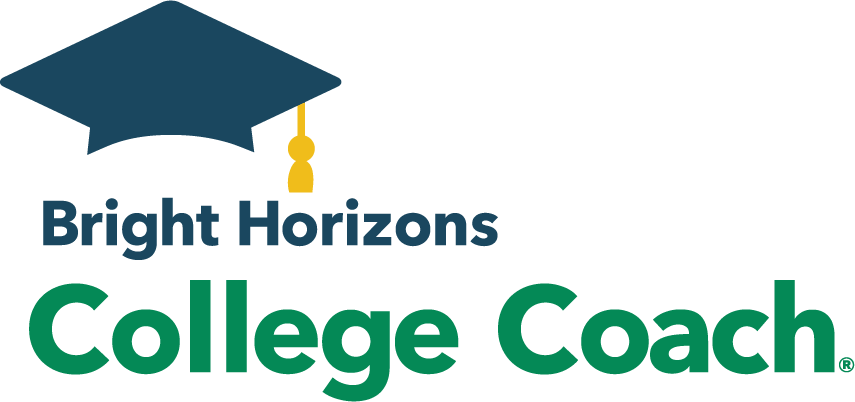
How to Write the Carnegie Mellon Supplemental Essays

Written by Emily Toffelmire on November 15th, 2017
- essay prompts ,
- writing college essays ,

amet, adipisicing elit sed do eiusmod tempor incididunt?
Follow these pre-application steps to help your student stay on track for admissions success., related resources.

Read | Posted on June 28th, 2024
Why NOT to use AI in Your College Essays

Read | Posted on November 17th, 2023
Are Optional College Essays Really Optional?

Read | Posted on November 6th, 2023
4 Tips for Writing the University of California Essays
Browse categories.
- Applying For Financial Aid
- Choosing The Right College
- College Admissions Consulting
- College Applications
- College Coach Mentionables: News & Events
- College Entrance Exams
- College Essays
- College Loan Advice
- College Visits
- Finding Scholarships
- How To Pay For College
- Meet a College Finance Expert
- Meet An Admissions Counselor
- Uncategorized
Interested?
Call 877-402-6224 or complete the form for information on getting your student started with one of our experts.
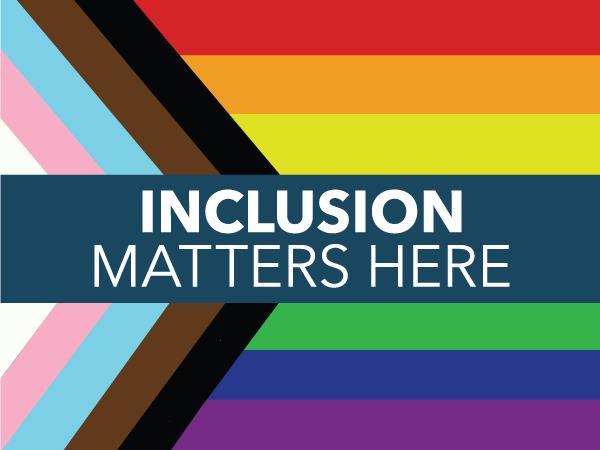
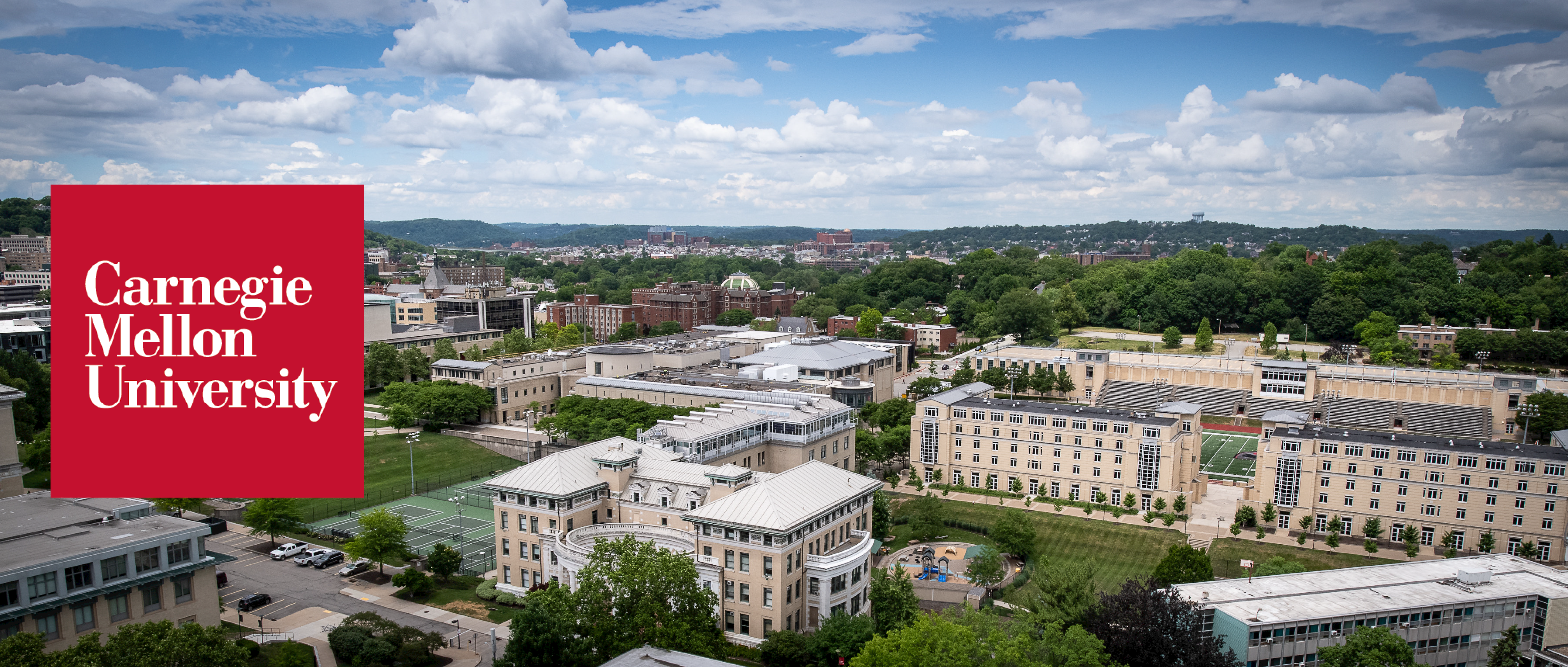
Carnegie Mellon University
- Cost & scholarships
- Essay prompt
Want to see your chances of admission at Carnegie Mellon University?
We take every aspect of your personal profile into consideration when calculating your admissions chances.
Carnegie Mellon University’s 2023-24 Essay Prompts
Why this major short response.
Most students choose their intended major or area of study based on a passion or inspiration that’s developed over time – what passion or inspiration led you to choose this area of study?
Process of Learning Short Response
Many students pursue college for a specific degree, career opportunity or personal goal. Whichever it may be, learning will be critical to achieve your ultimate goal. As you think ahead to the process of learning during your college years, how will you define a successful college experience?
Additional Info Short Response
Consider your application as a whole. What do you personally want to emphasize about your application for the admission committee’s consideration? Highlight something that’s important to you or something you haven’t had a chance to share. Tell us, don’t show us (no websites please).
Standardized Test Scores Short Response
When it comes to deciding whether to submit standardized test scores, occasionally applicants want us to better understand the individual context of their decision. If you’d like to take advantage of this opportunity, please share any information about your decision here. This is an optional question for those who may want to provide additional context for consideration.
Common App Personal Essay
The essay demonstrates your ability to write clearly and concisely on a selected topic and helps you distinguish yourself in your own voice. What do you want the readers of your application to know about you apart from courses, grades, and test scores? Choose the option that best helps you answer that question and write an essay of no more than 650 words, using the prompt to inspire and structure your response. Remember: 650 words is your limit, not your goal. Use the full range if you need it, but don‘t feel obligated to do so.
Some students have a background, identity, interest, or talent that is so meaningful they believe their application would be incomplete without it. If this sounds like you, then please share your story.
The lessons we take from obstacles we encounter can be fundamental to later success. Recount a time when you faced a challenge, setback, or failure. How did it affect you, and what did you learn from the experience?
Reflect on a time when you questioned or challenged a belief or idea. What prompted your thinking? What was the outcome?
Reflect on something that someone has done for you that has made you happy or thankful in a surprising way. How has this gratitude affected or motivated you?
Discuss an accomplishment, event, or realization that sparked a period of personal growth and a new understanding of yourself or others.
Describe a topic, idea, or concept you find so engaging that it makes you lose all track of time. Why does it captivate you? What or who do you turn to when you want to learn more?
Share an essay on any topic of your choice. It can be one you‘ve already written, one that responds to a different prompt, or one of your own design.
What will first-time readers think of your college essay?
Dietrich College of Humanities and Social Sciences
The admission process.
The Dietrich College of Humanities and Social Sciences welcomes you to submit an application to become a part of our next generation of problem-solvers, pioneering researchers and interdisciplinary scholars.
Each school and college within Carnegie Mellon University has a different set of admission criteria; however, the university’s Office of Undergraduate Admission centrally coordinates the application process university-wide.
Dietrich College Admission Statistics for Class of 2025+
Admitted student averages:.
*Represents the middle 50% range
Office of Undergraduate Admission
- Visitor Information
- Student Support Services
- Housing and Dining
- Health and Wellness
- Student Leadership, Involvement, and Civic Engagement
Plan Your Campus Visit
Carnegie Mellon is excited to offer both in-person and virtual visits so you and your family can choose the option that works best for you. Limited registration is available for in-person campus tours. You can also register for in-person information sessions with the Dietrich department of your choice or with our Academic Advisory Center . Or visit us online by taking a virtual campus tour and signing up for an online information session.
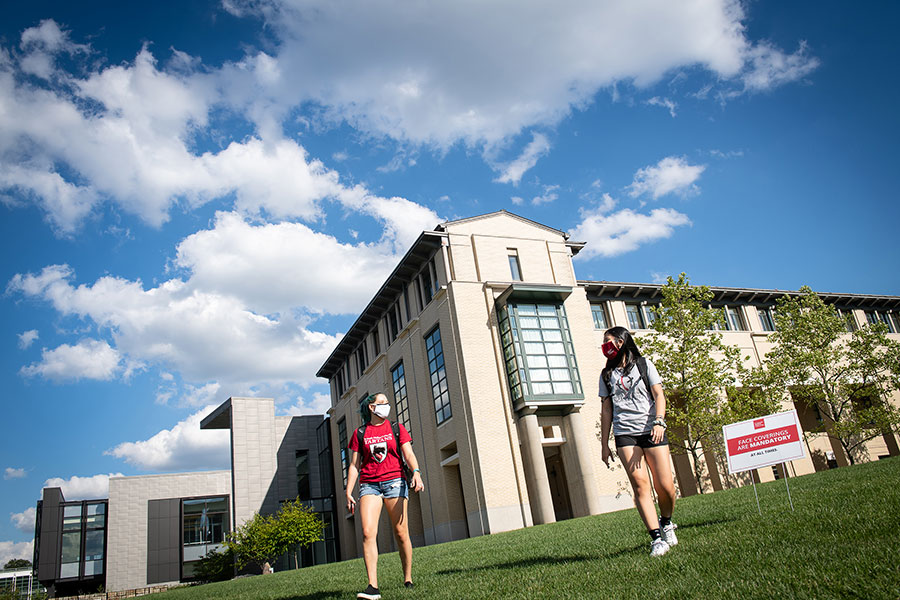
Frequently Asked Questions
Requirements and deadlines, what are the admission requirements for the dietrich college.
The Office of Undergraduate Admission requires:
- the Common Application
- an application fee
- high school transcript
- all required standardized testing official score reports*
- a Secondary School Counselor Evaluation
- a Teacher Evaluation
- Common Application Essay
- Carnegie Mellon Common Application Writing Supplement
* Carnegie Mellon University has adopted a test-optional policy through fall 2024, removing the SAT/ACT standardized testing requirement for first-year applicants.
View more details on these requirements.
What are the high school academic requirements for admission to the Dietrich College?
- 4 years English
- 3 years mathematics*§
- 1 year science (2 years or more preferred)
- 2 years foreign language
- 6 electives
Are there any additional requirements for international students?
Carnegie Mellon University defines an international applicant as someone who is a citizen or permanent resident of a country other than the United States, and who will be studying in the United States on a temporary visa. For international students, the application procedure and timetables are essentially the same as for candidates applying from schools in the United States.
Please note:
- Carnegie Mellon doesn't offer financial aid to international students.
- The Test of English as a Foreign Language (TOEFL), International English Language Testing System (IELTS) or Duolingo English Test (DET) is required if your native language is not English.
View for more information on how to apply as an international undergraduate student.
What factors are considered for admission?
Every applicant is an individual, and we take great care to make admission decisions fair, thorough and sensitive. We're interested in students who can be successful at Dietrich College while taking full advantage of all the university has to offer and enriching our campus community.
We consider your:
- Academic and artistic potential
- Recommendations
- Standardized test scores*
- extracurricular accomplishments, part-time jobs, hobbies and community service
- leadership, motivation, passion and perseverance, concern and advocacy for others, and other experiences
- Essay responses
*CMU has adopted a test-optional policy through Fall 2022, removing the SAT/ACT standardized testing requirement for first-year Fall 2021 and Fall 2022 applicants.
Learn more about these factors in our admission decisions.
What are the deadlines for applying to Dietrich College?
|
|
|
|
|
| Early Decision 1 | Nov. 1 | Dec. 15 | Feb. 15 |
| Early Decision 2 | Jan. 3 | Feb. 1 | Feb. 15 |
| Regular Decision | Jan. 3 | April 1 | May 1 |
| Early Admission (for qualified juniors in high school) | Jan. 3 | April 1 | May 1 |
Learn more about application plans and deadlines.
Do I need to declare a major on my application?
We recommend you to indicate a program and/or major preference at the time you apply, since CMU does limit access to certain majors. Primary majors should be declared no later than mid-semester of the last semester of your sophomore year.
Exceptions:
- Interested students should apply directly to the Information Systems program.
- Applicants to the Bachelor of Humanities and Arts program follow the BXA Intercollege Degree Programs application process.
Do you accept placement and/or credit for college-level work?
CMU may grant advanced placement and/or credit for designated scores on:
- Advanced Placement
- International Baccalaureate
- Cambridge General Certificate of Education A-Level (advanced level examinations)
CMU also may grant placement or credit for college work completed during high school. View more information about placement and/or credit for college-level work.
Cost of Attendance and Financial Aid
What is the cost of attending carnegie mellon university.
2023-2024 Academic Year Undergraduate Tuition and Fees
First-Years Entering Fall 2023
|
|
|
|
| Tuition | $62,260 | $62,260 |
| Fees | $1,569 | $1,569 |
| * | $17,468 | $3,534 (estimate) |
| Books & Misc. | $1,000 (estimate) | $1,000 (estimate) |
| Travel Allowance** | Variable | $680 (estimate) |
|
|
|
|
The university reserves the right to change its charges without notice.
*The cost for room and dining is an estimate based on a standard double room in university housing, a dining plan contract and the residence hall activity fee. Some students may be housed in triples and quads at lower rate, without a reduction in their eligibility for financial aid.
**These expenses will not appear on your student account. Travel allowance for resident and off-campus students varies based on home state.
+Health insurance coverage is required at an estimated cost of $2,603/year for all students unless a waiver is granted for students covered under their family’s health plan.
Learn more about the cost of attendance and financial aid.
Does CMU offer financial aid to undergraduate students?
Carnegie Mellon does offer financial aid to undergraduate students who are U.S. citizens, permanent residents or DACA recipients. International students must assume the total cost of attendance.
Financial aid forms are required by Feb. 15 for Regular Decision applicants.
The university provides a financial aid decision no later than April 1. Learn more about financial aid at CMU.
Learn more about financial aid at CMU.
Transfer Admission
I want to transfer to carnegie mellon and dietrich college. is this possible.
The Dietrich College admits a small number of transfer students. A fall transfer is possible where space permits, but spring transfer is extremely limited due to space constraints.
Learn more about applying for transfer admission.
I am currently enrolled in another college or school at Carnegie Mellon. How do I transfer to Dietrich College?
You must complete an internal transfer application and meet with the college’s Academic Advisory Center (AAC). The college will evaluate your academic record, current academic standing, areas of interest and the timing of your application.
Acceptance and Enrollment
I was just admitted to carnegie mellon and the dietrich college. now what.
Review your financial aid package You will receive your financial aid decision no later than April 1, provided you submitted your forms by the Feb. 15 deadline.
Have questions? Current students, faculty and/or academic advisors are available to help you.
Confirm your enrollment by May 1 If you choose to attend CMU and applied via Regular Decision or Early Admission, submit your non-refundable enrollment deposit by May 1*
Monitor your e-mail and mailbox Dietrich College’s Academic Advisory Center and Carnegie Mellon University will send you information about registration, enrollment, insurance, orientation, housing and dining and more throughout the summer.
* This deposit will be credited to your first semester’s charges.
- CMU Directory
- Dietrich College Calendar
Get the Reddit app
Join the A2C Discord!
r/ApplyingToCollege is the premier forum for college admissions questions, advice, and discussions, from college essays and scholarships to college list help and application advice, career guidance, and more.
Carnegie Mellon Additional essay
If I chose to apply SAT optional to Carnegie Mellon, should I do the 150 word additional essay about standardized test scores?

IMAGES
VIDEO
COMMENTS
How to Write the Carnegie Mellon University Essays 2023-2024. Tucked away in Steelers country, otherwise known as Pittsburgh, Pennsylvania, lies the 153 acre campus of Carnegie Mellon University. CMU is home to just under 7,000 undergraduate students enrolled across its seven schools and colleges. Priding itself on copious opportunities as a ...
What are the Carnegie Mellon Supplemental Prompts for 2022-23? This year Carnegie Mellon requires students to write three short essays of 300 words each. Here are the Carnegie Mellon University writing supplement prompts for 2022. The questions on this page are being asked by Carnegie Mellon University:
The three 300-word essays required by Carnegie Mellon give applicants the chance they need to separate themselves from the throngs of other extremely talented and deserving CMU hopefuls. Below are CMU's supplemental prompts for the 2023-24 admissions cycle along with tips about how to address each one. Carnegie Mellon Supplemental Essays - #1
The Carnegie Mellon supplemental word limit for these essays allows you to write up to 300 words for each essay prompt, but you will still have to be efficient about how you craft your responses. The Carnegie Mellon supplemental essays 2022 are as follows: Many students pursue college for a specific degree, career opportunity or personal goal.
Carnegie Mellon is one of the nation's top universities. With a 14% acceptance rate, CMU surely gets top applicants each year. If you want to rise above the rest, the Carnegie Mellon supplemental essays are your chance. Carnegie Mellon's prompts touch on different aspects of your background, interests, and goals. They are a great way to ...
Carnegie Mellon University 2023-24 Application Essay Question Explanations. *Please note: the information below relates to last year's essay prompts. As soon as the 2024-25 prompts beomce available, we will be updating this guide -- stay tuned! The Requirements: 3 short essays of 300 words. Supplemental Essay Type (s): Why, Short Answer.
How to write each supplemental essay prompt for Carnegie Mellon. Prompt #1: "Why major" essay. Prompt #2: "Why us" essay. Prompt #3: "Additional information" essay. If you combined a robber baron, a classic fruit, and an extra "L," and somehow ended up with a top 25 university with an especially strong engineering program, you'd obviously ...
Carnegie Mellon Supplemental Essays 2023-24. Carnegie Mellon University is renowned for its unwavering commitment to academic excellence, especially in engineering and computer science.As one of the nation's top universities, CMU demands rock-solid applications, which means well-crafted Carnegie Mellon supplemental essays.
For the Carnegie Mellon supplemental essays for the 2023-2024 admissions cycle, a well-structured essay can make the difference between an application that stands out and one that gets lost in the pile. ... Additionally, the U.S. News & World Report's 2022-2023 Best Colleges Rankings lists it as the 22nd-best National University in the U.S ...
Read our Carnegie Mellon essay breakdown to get a comprehensive overview of this year's supplemental prompts. Essay Example #1 - Computer Science ... She references her experiences during the 2022 election and Kode With Klossy events which each relied on bringing together both her academic interests. In the final paragraph, the author ...
The key to answering this question among the Carnegie Mellon supplemental essays 2021-2022 lies in conducting appropriate research surrounding the major and college you've chosen. Think about what your experiences have looked like so far — and most importantly, connect your past to your chosen field at CMU. You can write about specific ...
Weave all these together into a cohesive narrative - you're telling a story from the past and bringing it into the future you're wanting at Carnegie Mellon. Tie it all together. Many students pursue college for a specific degree, career opportunity or personal goal. Whichever it may be, learning will be critical to achieve your ultimate goal.
How to Write Carnegie Mellon Supplemental Essay #1 + Analysis and Tips. Analysis of prompt #1: The first Carnegie Mellon essay prompt asks you to explain your choice of major in three hundred words or less. In other words, this is considered a "why this major" essay, a common question in the college application process.
Carnegie Mellon is ranked among the top 25 universities in the nation, so you'll need to have an impressive application—with stand-out essays, of course!—in order to get admitted. Applicants must submit a total of four Carnegie Mellon essays, three of which comprise the Carnegie Mellon supplement. Keep reading to learn what the current Carnegie Mellon essay prompts are, what topics you ...
There are three required Carnegie Mellon essays in the 2021-2022 Common App. There is also one optional prompt to explain circumstances surrounding test scores. We recommend that most students just answer the first three Carnegie Mellon essay prompts. Students should only complete the fourth Carnegie Mellon essay prompt if they have extenuating ...
CMU has a 15% acceptance rate. Their Common App has three supplemental questions, which we gotta say, aren't bad. We've covered Carnegie Mellon before, and the questions haven't changed from last year. Because we've helped so many students master these essays before, we are confident our guide for Carnegie Mellon will help you too.
The mission of Carnegie Mellon University includes the cultivation of a diverse and inclusive community. Our undergraduate admission process is committed to reducing or eliminating advantages that have been inherent in the admission process. The goal is to provide a more equitable, level playing field where all segments of our applicant ...
Updated for 2023-2024. This year, Carnegie Mellon asks students to answer three supplemental essay prompts. The first calls students to consider their goals for their college experience, the second to describe their interests and passions, and the third to highlight something that is important to them.
Carnegie Mellon University has just two required supplemental essays, one long and one short. You'll also find two optional prompts that allow students to explain educational interruptions and discuss their CMU admission interview, if they had one. Prompt #1: Please submit a one page, single-spaced essay that explains why you have chosen ...
Common App Personal Essay. Required. 650 words. The essay demonstrates your ability to write clearly and concisely on a selected topic and helps you distinguish yourself in your own voice. What do you want the readers of your application to know about you apart from courses, grades, and test scores?
Common Application Essay Carnegie Mellon Common Application Writing Supplement *Carnegie Mellon University has adopted a test-optional policy through Fall 2022, removing the SAT/ACT standardized testing requirement for first-year Fall 2021 and Fall 2022 applicants. View more details on these requirements.
How to Write the Carnegie Mellon Supplement 2023-2024. If you are a STEM student, you have probably considered applying to Carnegie Mellon University. CMU is a private research university located in Pittsburgh, Pennsylvania. While CMU might be best known for its STEM majors, the university offers a wide array of programs across several schools.
Without that, the assumption will likely be be that you are omitting a low score, IMO. I would suggest not writing an essay opining on the unfairness of testing or something similar as the reason you are not submitting scores. 1. Reply. If I chose to apply SAT optional to Carnegie Mellon, should I do the 150 word additional essay about ...